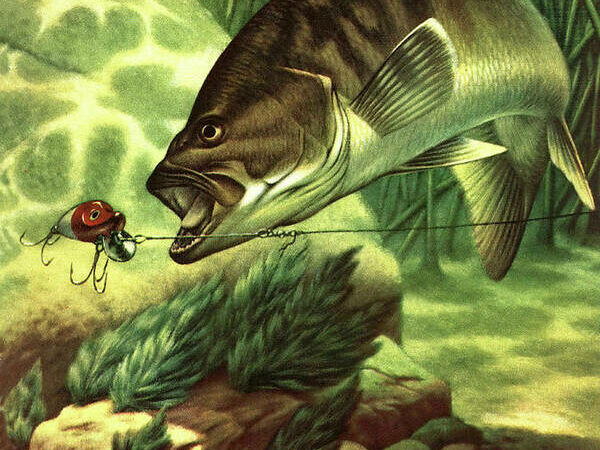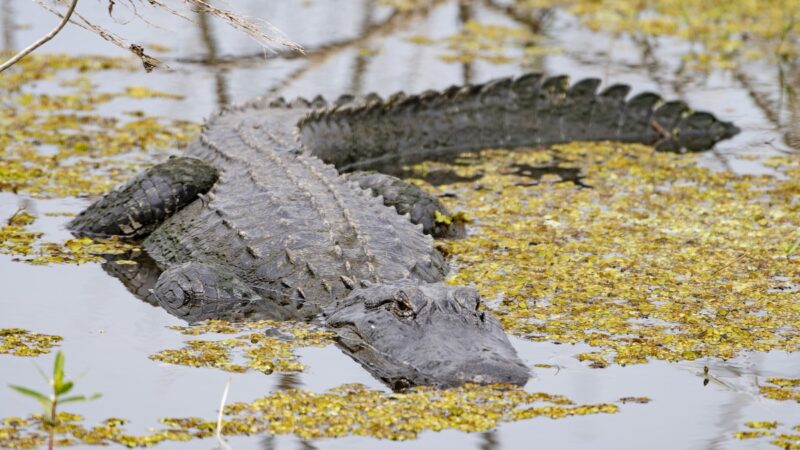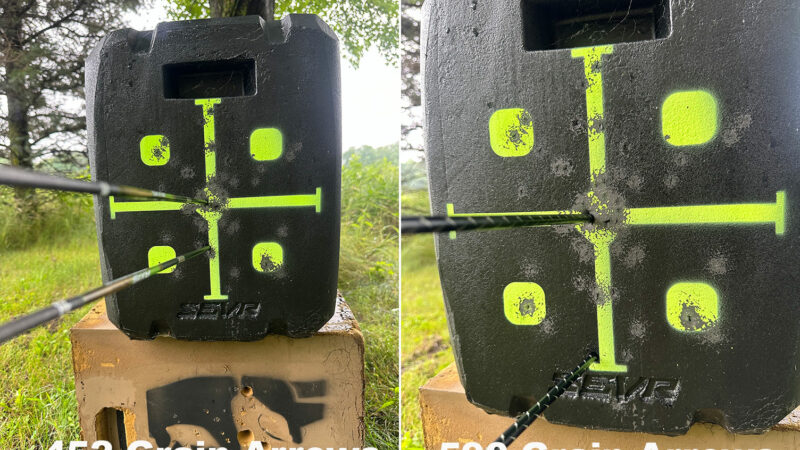During Australia’s Duck Season ‘Circus’ Anti-Hunting Activists Will Steal Your Birds, Paddle Through Your Decoys, and Film Your Kids
It’s 25 minutes to shooting time when a black duck lands in the decoys.
The cover around us is so thick I have to part the reeds for a good look at Australia’s version of a mallard: a tawny, big-bodied bird with a dark crown and cream racing stripes swooping past its red eyes.
Everything feels just right this morning. Promising numbers of birds flocked on this suburban wetland outside Melbourne yesterday and today. We have a fine early-fall wind, a realistic spread, and an effective hide: a mud boat parked in curtains of tall cumbungi. Its owner and my host, Glenn Falla, is standing in the stern anxiously checking the time. Another black duck swings overhead. Twenty four minutes left.
“And there goes our hunt,” says Falla suddenly.
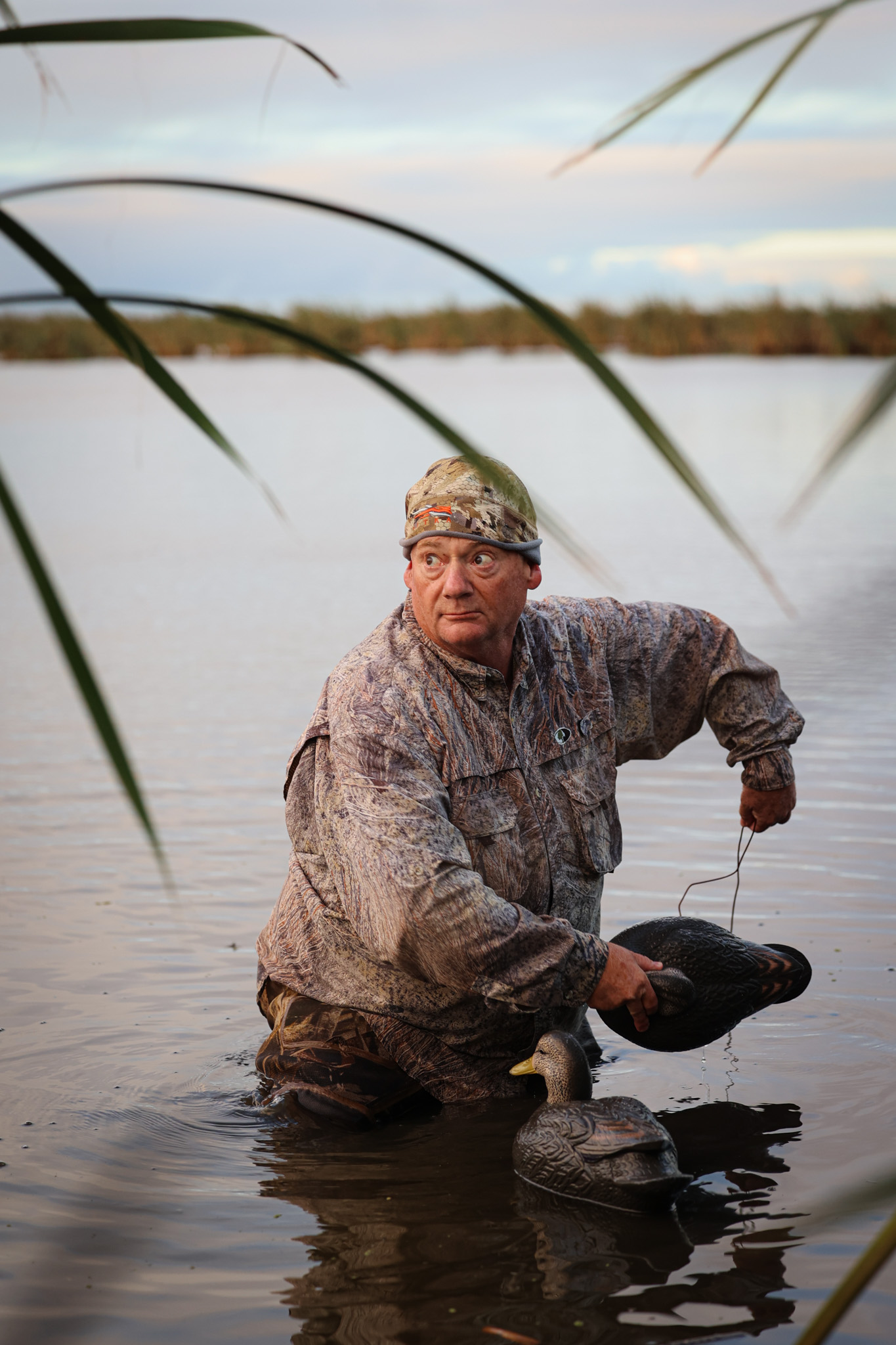
The next visitors to our spread are easy to see because they’re trying to stand out. Two people in fluorescent construction vests and white jackets are paddling into our hole atop cheap cherry-red kayaks. They spot our spinner and turn toward it. To hide their identities, one wears a balaclava; the other cinches her hood low and tight over her eyes as she approaches.
Even with their faces obscured I recognize one protestor from the boat ramp. Her name is Natalie Kopas and she’s a known anti-hunting advocate from Melbourne who protests every duck season and is currently running for political office. Earlier this morning she’d parked a white Land Cruiser in the middle of the narrow dirt turn-around. When Falla had politely asked her to move because she was blocking traffic, she had replied, “I’m quite happy here.”
A sticker on the Toyota’s back windshield showed comedian Betty White cradling a baby goat, superimposed by her quote, “You can always tell about somebody by the way they put their hands on an animal.” It would be easy to overlook the dime-sized calling card in the sticker’s corner: a shady fox with the slogan MELBOURNE HUNT SABOTEURS.
I’m both annoyed and fascinated by the arrival of activists in our setup. The hunter in me would prefer a good hunt, fast and drama-free. But this “circus,” as Falla calls it, is the primary reason I’ve flown halfway around the world. It’s common for anti-hunting protesters to take over marshes here during the season, intentionally flaring ducks and blowing hunts under the pretense of rescuing wounded birds. While these antics would lead to the mother of all ass-beatings back home in Arkansas, the hunters here in Australia have no choice but to grin and bear it.
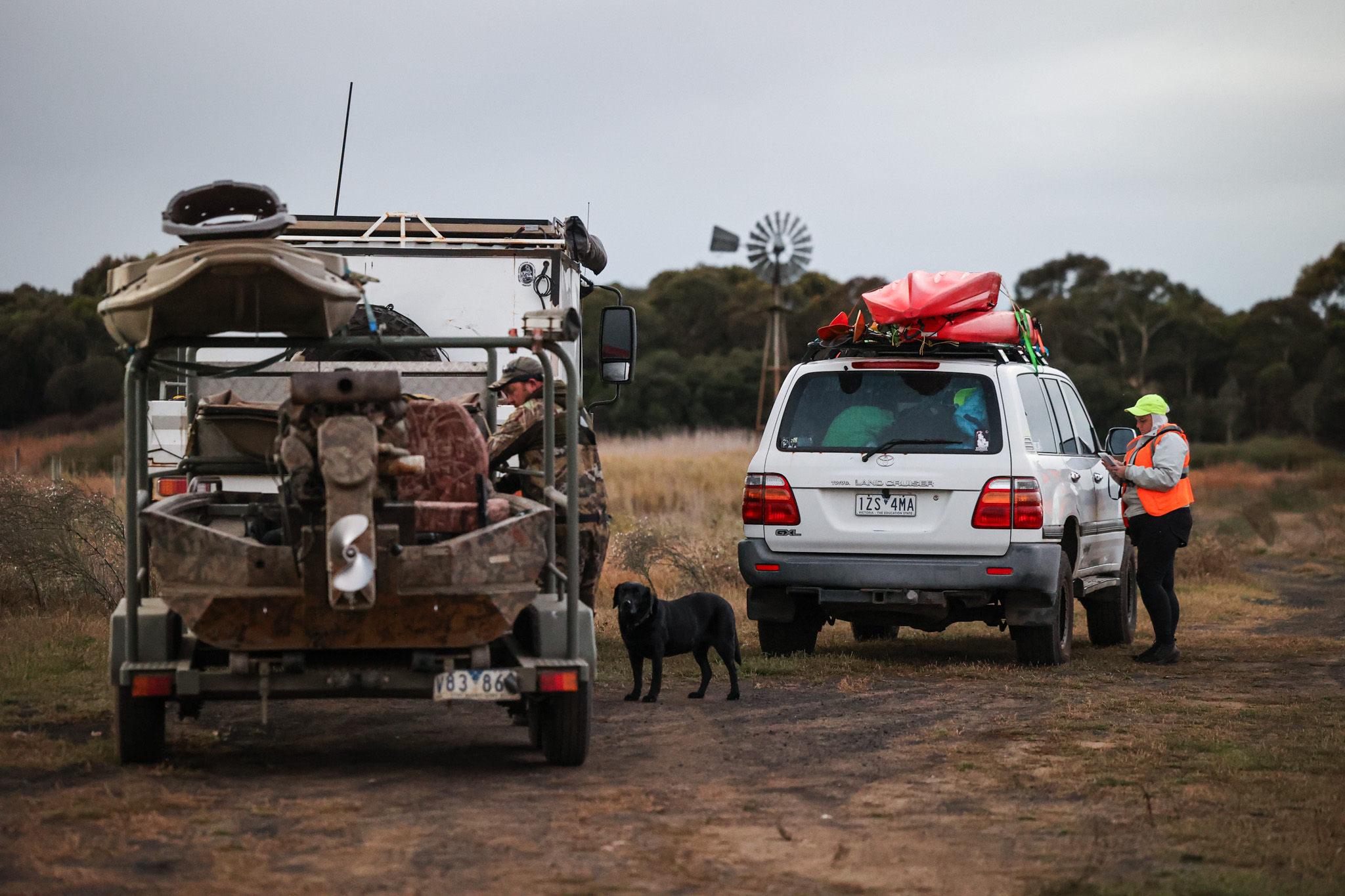
Animal-rights activists have gained permanent ground here in the fight to shut down recreational duck hunting. The practice is banned in three of Australia’s six states and one territory; it remains legal but increasingly squeezed in the other three states and the second territory. That Victoria even had a duck season at all this year is a victory for its hunters. Falla and fellow advocates thought the 2023 Victoria and South Australia seasons might be their last as they fought to prevent an all-out ban on game bird hunting, which was recommended in Victoria after an intensive government inquiry in August. The ban was ultimately rejected on the grounds that hunting native Australian ducks is a sustainable and largely ethical practice; it also didn’t hurt that six local trade unions threatened to strike in Melbourne if it passed. (Many union members are loyal duck hunters; last year 800 Electrical Trade Union members walked off the largest construction project in the state in protest of the ban and in defense of outdoor recreation at large.) The 2024 season was allowed to continue, but not without enduring changes that have eroded its spirit.
For years antis have chipped away at the country’s rich waterfowling culture with strategies that range from in-your-face hunter harassment to insidious legislation that makes game laws so complicated they are nearly impossible to abide by. It’s tempting for Americans to dismiss this culture war as a foreign problem, but that would be a mistake. Much of what’s happening in Australia can absolutely happen in the U.S. Some of it already has.
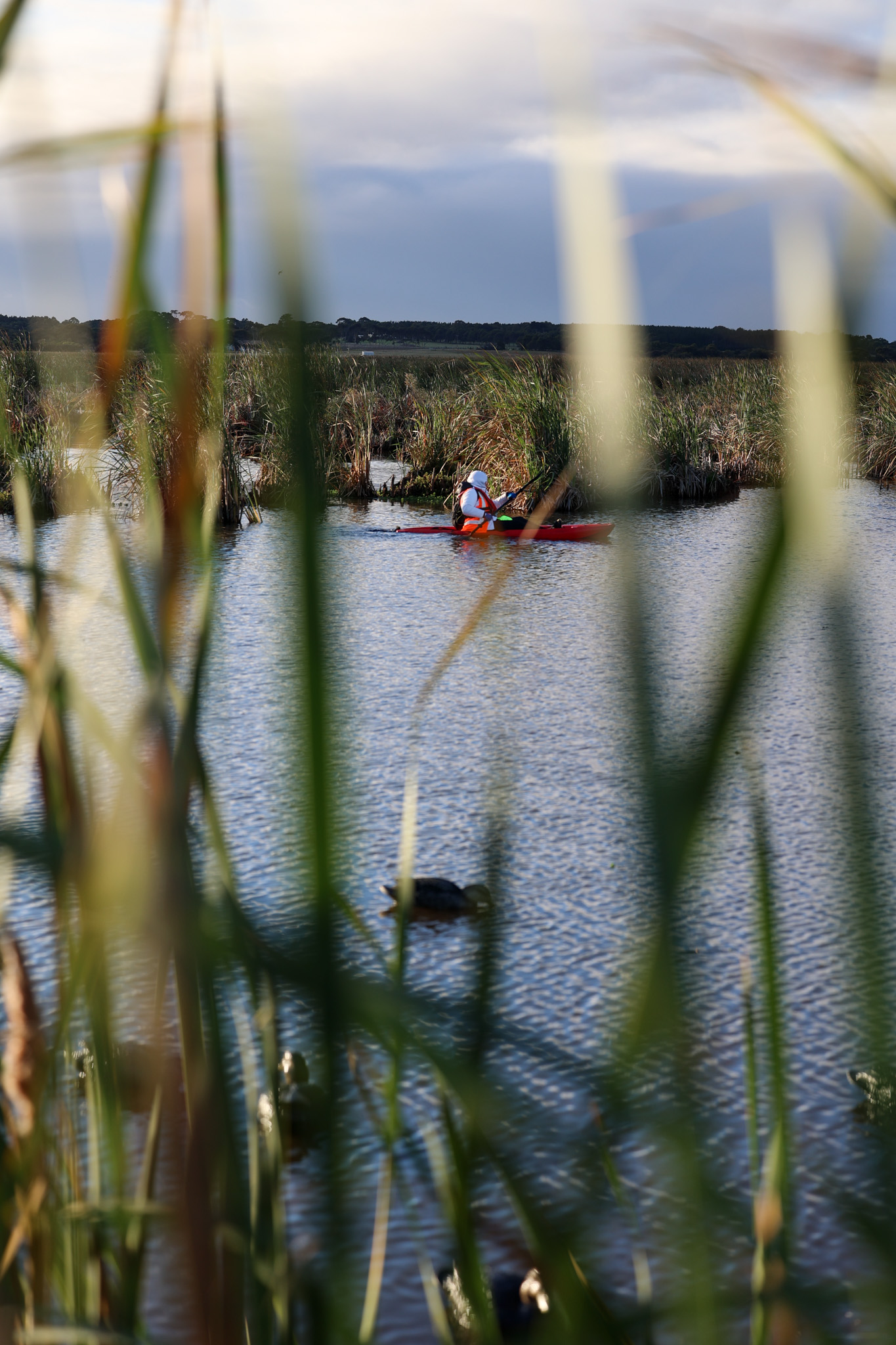
When I point my 200mm camera lens at the two activists — now about 40 yards away — they spook. They adjust their face coverings and turn their backs, slipping into the reeds and paddling deeper into the marsh in search of our buddies, who are set up about 100 yards away.
But the damage has been done. The antis had no trouble finding us because it’s nearly two hours after daybreak. Here in the state of Victoria, legal shooting light has been restricted to 8 a.m. and not a minute sooner — no matter what time the sun rises. So it’s no surprise that, when shooting time rolls around at long last, there’s not a duck in sight.
The Plight of the Australian Duck Hunter
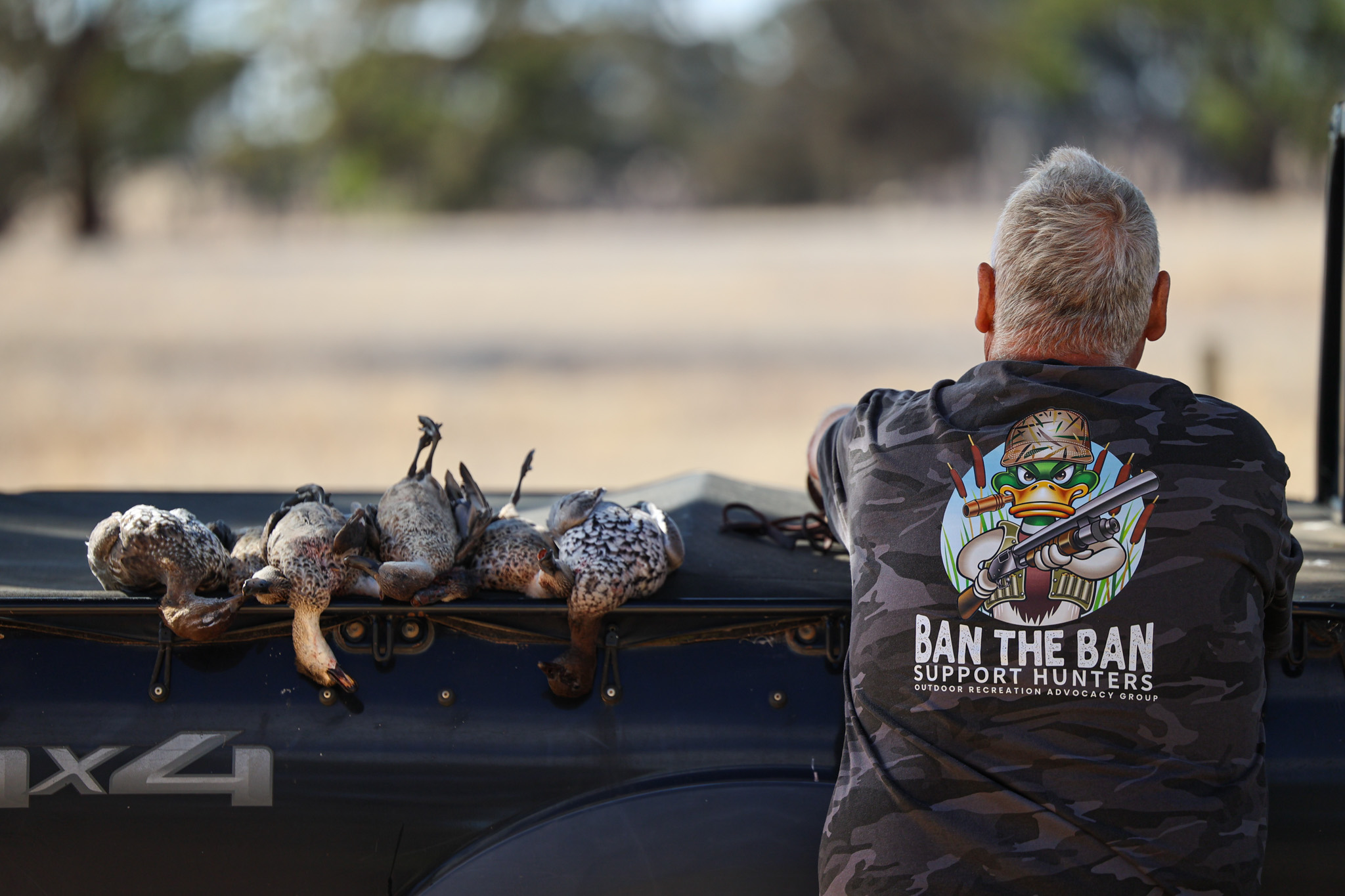
Two days before Victoria’s duck opener this April, Falla collected me at the airport in Melbourne. Like many Australians the 56-year-old is good-humored, chatty, and well disposed toward Americans.
In addition to his day job as conservation and hunting manager for Field and Game Australia — a non-profit that helped defeat the duck hunting ban — Falla is Australia’s affiliate outfitter for Ramsey Russell’s GetDucks.com, a hunt-booking agent that has opened new international waterfowl opportunities for Americans. Falla is also a self-described rev head with a love of motorcycles, muscle cars, and nice duck boats; he tells me that he owns one of only two mud boats on the continent.
He relays all this while driving the exact speed limit as we flee the city. Because speeding, even a little, is a bad idea in this “nanny state,” as its citizens often call it. To an American like me, Australia feels more like a police state. Everything from driving to hunting is closely regulated and monitored, and even minor infractions have outsized consequences. Anything the cops deem reckless driving can get your car confiscated and crushed. Forget to renew your duck license? You could be banned for years. Government billboards at regular intervals along the highway read, “Police can catch you. Anywhere. Anytime. Anyone.”
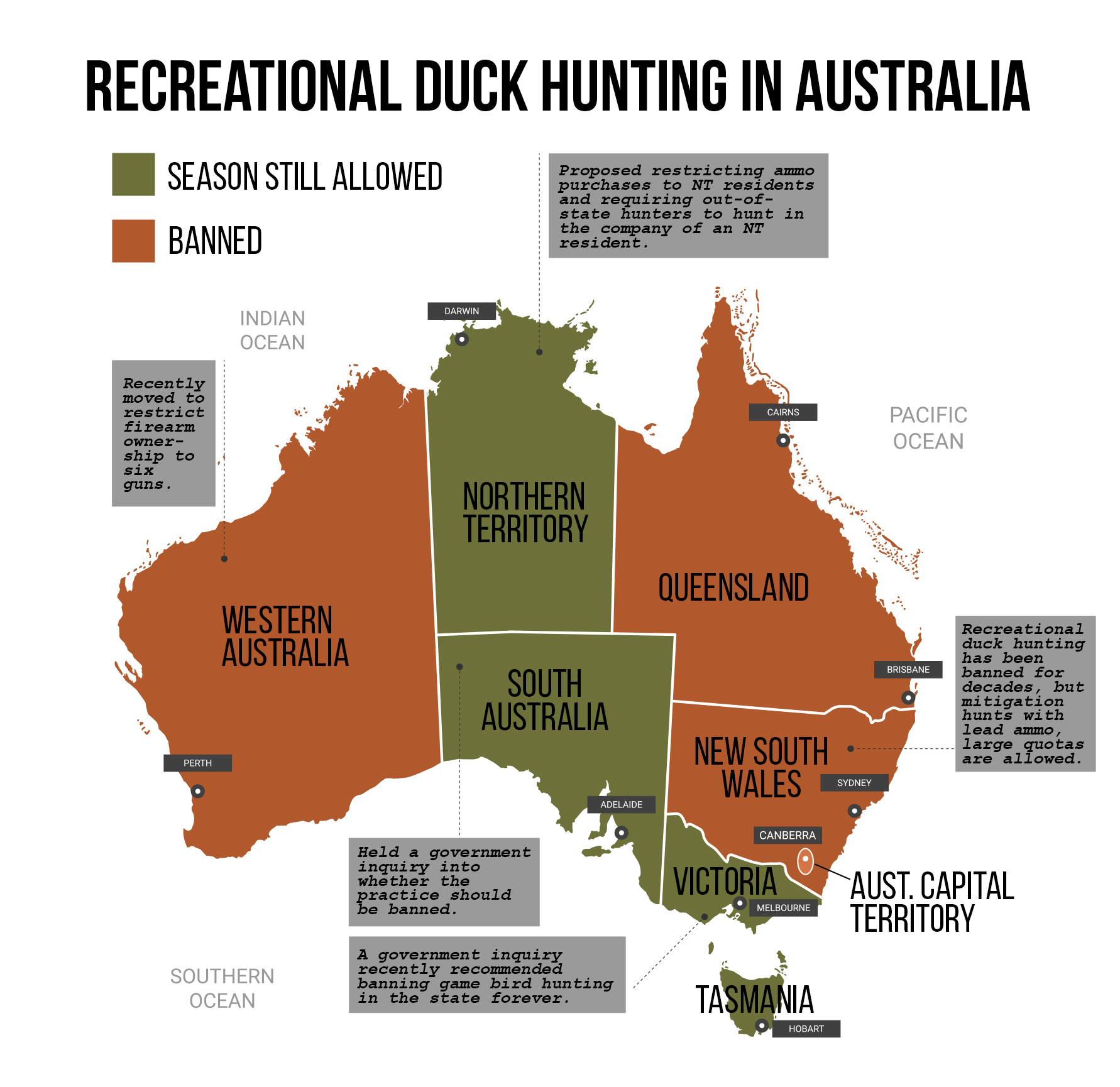
Falla drove me straight from baggage claim to an examination room. My first order of business was to pass my Waterfowl Identification Test, which requires correctly naming game and nongame species in 22 silent video clips during an exam administered by a game warden. If that weren’t onerous enough, Victorian authorities recently made it even harder by removing the practical “Not sure don’t shoot” option. If you miss properly identifying one protected species, you fail. If you miss more than one game species, you fail.
But even the most onerous regulations and inevitable anti-hunter harassment are not enough to keep hardcore hunters like Falla and his buddy Trent Leen off the marsh. Leen, the owner of Australia’s other mud boat, was the unfortunate host of the two kayakers who left our decoys in search of his. Leen is a Field and Game board member, and says he’s often targeted by activists who are hoping to catch hunting-community leaders making a mistake.
“I let them know that we were there so they couldn’t say that they didn’t know that we were there,” says Leen, who stood and informed the protestors they were in a flight path for ducks and would be hindering their hunt if they stayed. He wasn’t surprised when they ignored him. “Typically they’re mute. They never actually talk back to you. The only time they’ll engage is if they get a rise out of people.”
Activists, who may legally stand within 10 meters of duck hunters to exercise their right to protest, have several goals. As self-proclaimed saboteurs, one is to scare birds out of shotgun range. This interference is technically illegal but difficult to enforce, let alone reliably prove to authorities. Second, they hope to document hunters doing something illegal, unethical, or unsavory, such as losing ducks or losing their temper on camera and thus providing excellent social media fodder to show how hunters are irresponsible citizens. The third and most often touted goal is to “rescue” wounded ducks.
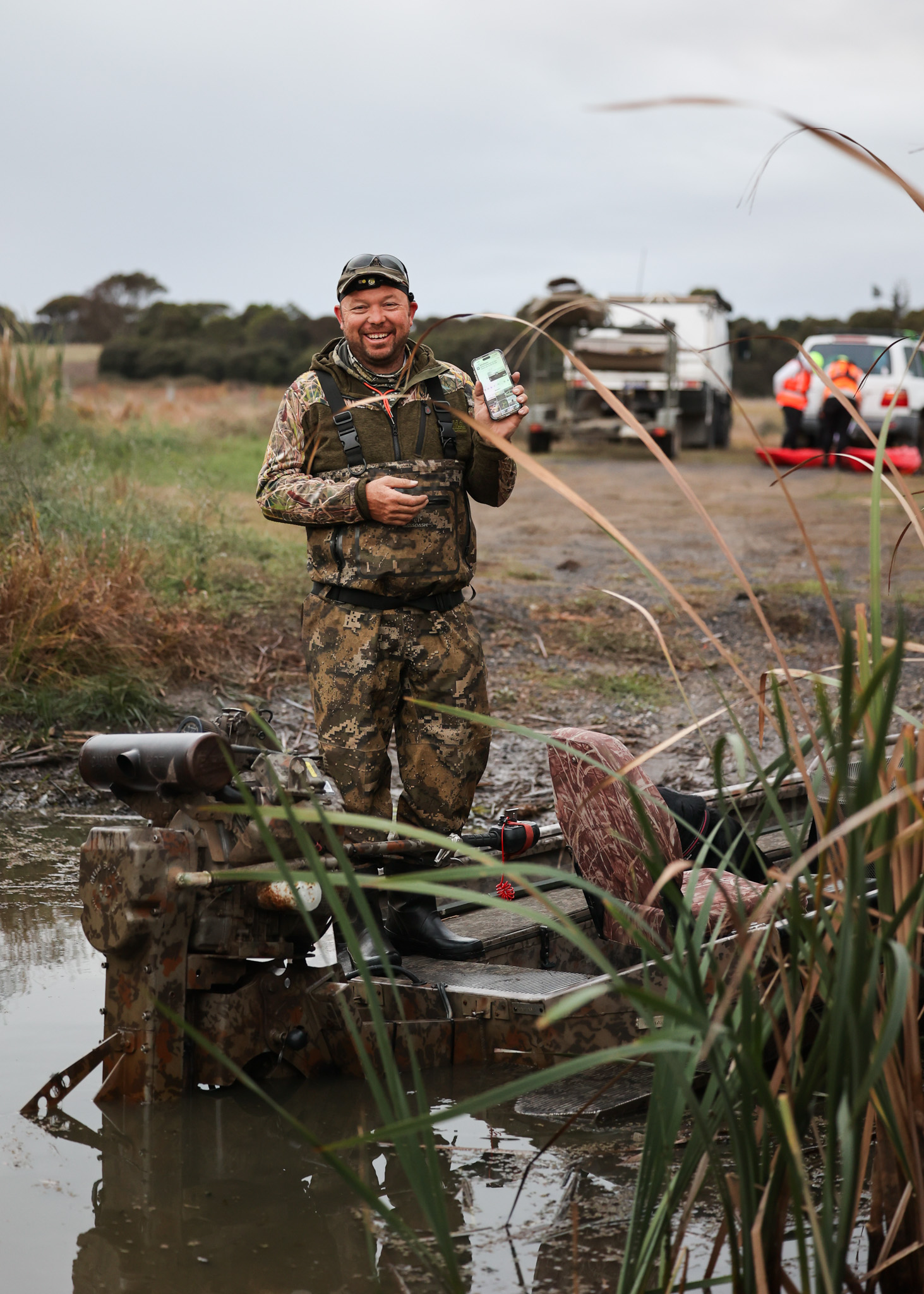
All morning, Leen and two of his Field and Game colleagues watched the paddlers tool back and forth like lap swimmers, flaring most birds that wanted to work. When a flock finally came in at a different angle and didn’t see the kayaks, the hunters couldn’t shoot because the paddlers were in their line of fire. Only one black duck ever committed and Leen’s colleague knocked it down, but the duck was still alive when it hit the water.
“If [the protestors] get to that duck before I do and it’s still alive, they can technically try and rescue it,” says Leen. “So as soon as the duck was down I was straight off after it. Our black ducks are notoriously tough and if they get into those reeds and they’ve still got some kick in ’em, they can be hard work.”
Despite a couple swatter loads this duck did just that. Leen beelined after it with his aging black Lab, Larney, in tow and antis recording all the while. At last he heard rustling and Larney emerged from the reeds with — to his immense relief — a black duck in her mouth.
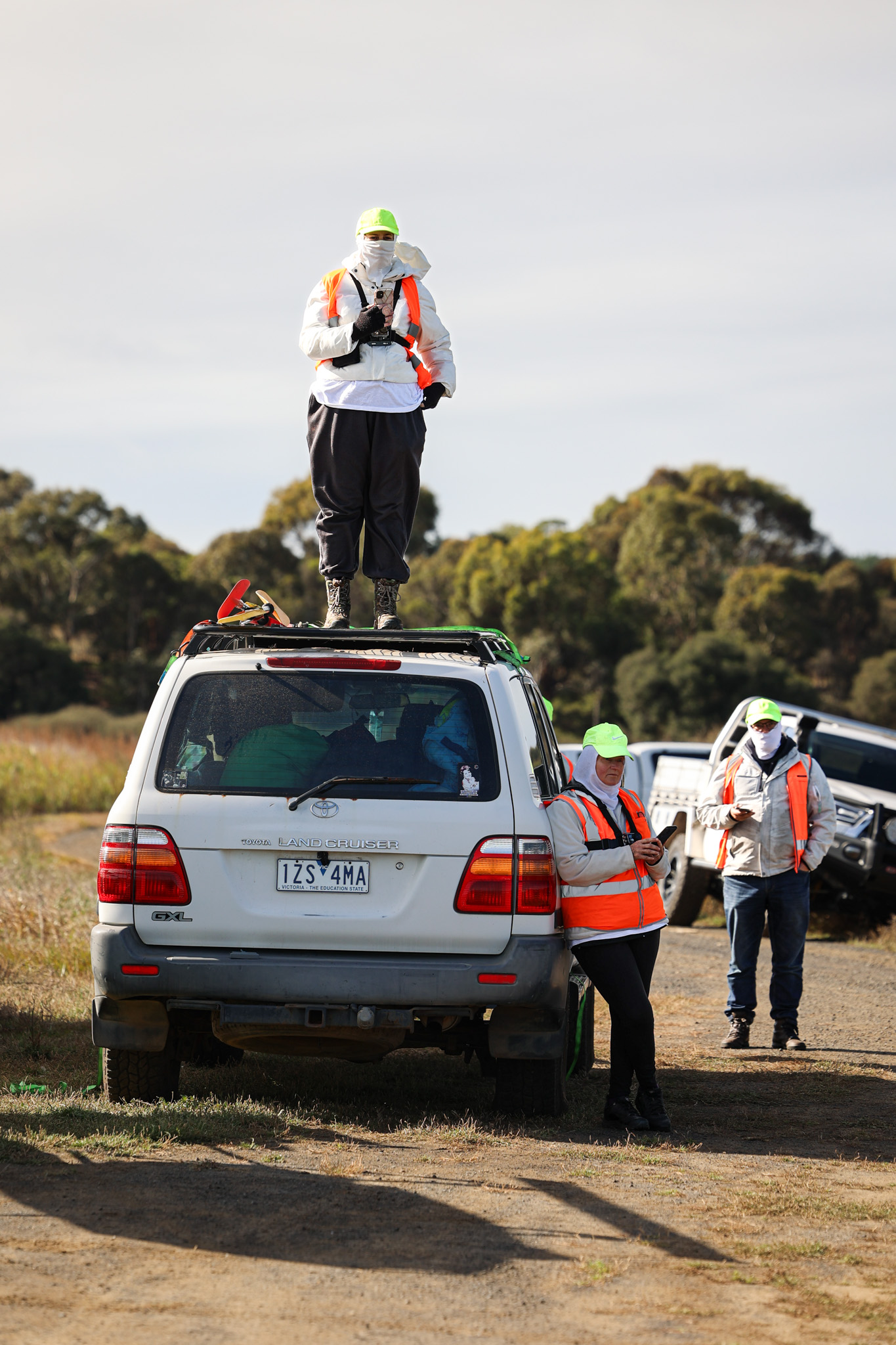
“It felt like an eternity [when you’ve got cameras on you] but in reality it was nearly five minutes,” Leen tells me later. The whole time we’re trailering boats and packing up back at the ramp, a fresh knot of silent protestors film us with smartphones and GoPros strapped to their chests.
If Leen’s dog was less experienced or the duck fit enough to escape and perhaps survive, the paddlers could have reported him for not “making every effort” to recover it and circulated the video as an example of another cruel hunter wounding a duck. If the protesters had somehow reached the duck before Leen, they would have taken it to one of their “rescue” camps. But even the antis have admitted that they are not able to revive many ducks at their triage tents.
I’d like to ask the protestors about the ethics of depriving a duck of a swift death by a hunter who would eat it, only to euthanize it under the bright lights of a vet table and waste its meat. But I don’t. It’s clear that the situation here has moved beyond the point of rational discussion.
Death by a Thousand Cuts
Opening week of duck season in Victoria resembles the dove opener in Texas. Many hunters make a social weekend of it, camping out near the gentle dirt roads that ring many of Victoria’s shallow wetlands. (Australia has a dedicated overlanding and camping culture.) They cook a leisurely breakfast and then simply wade out into the marsh a few hundred yards to pass-shoot ducks. These low-key setups make it easy for casual hunters to have a good time, and convenient for activists to interfere.
So when a procession of 40-odd cars pulled into a public field beside Wooroonook Lake just after 7 a.m. on opening day, the hunters camped there reacted in one of three ways. Some bailed, packing up to flee the protestors.
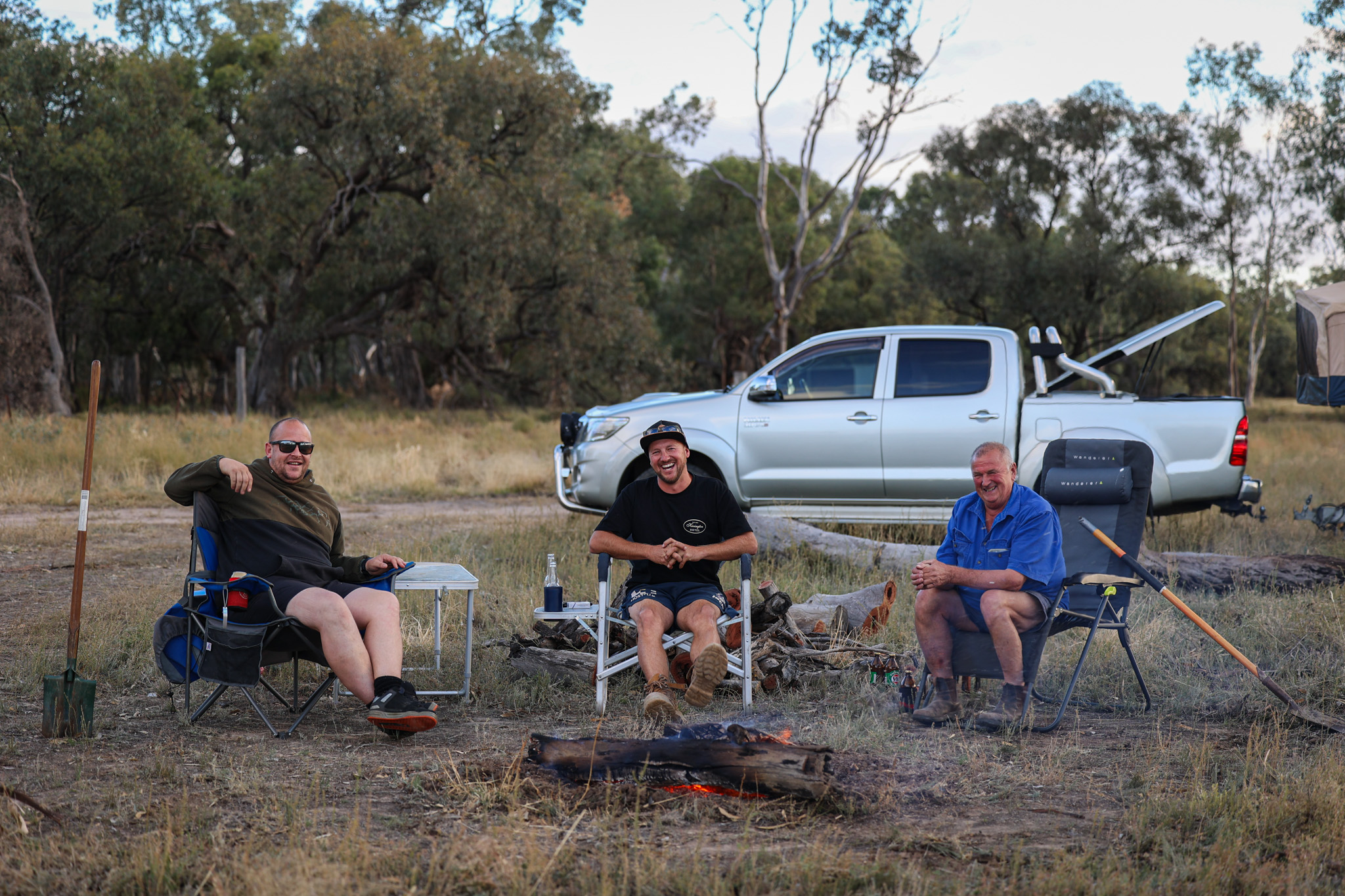
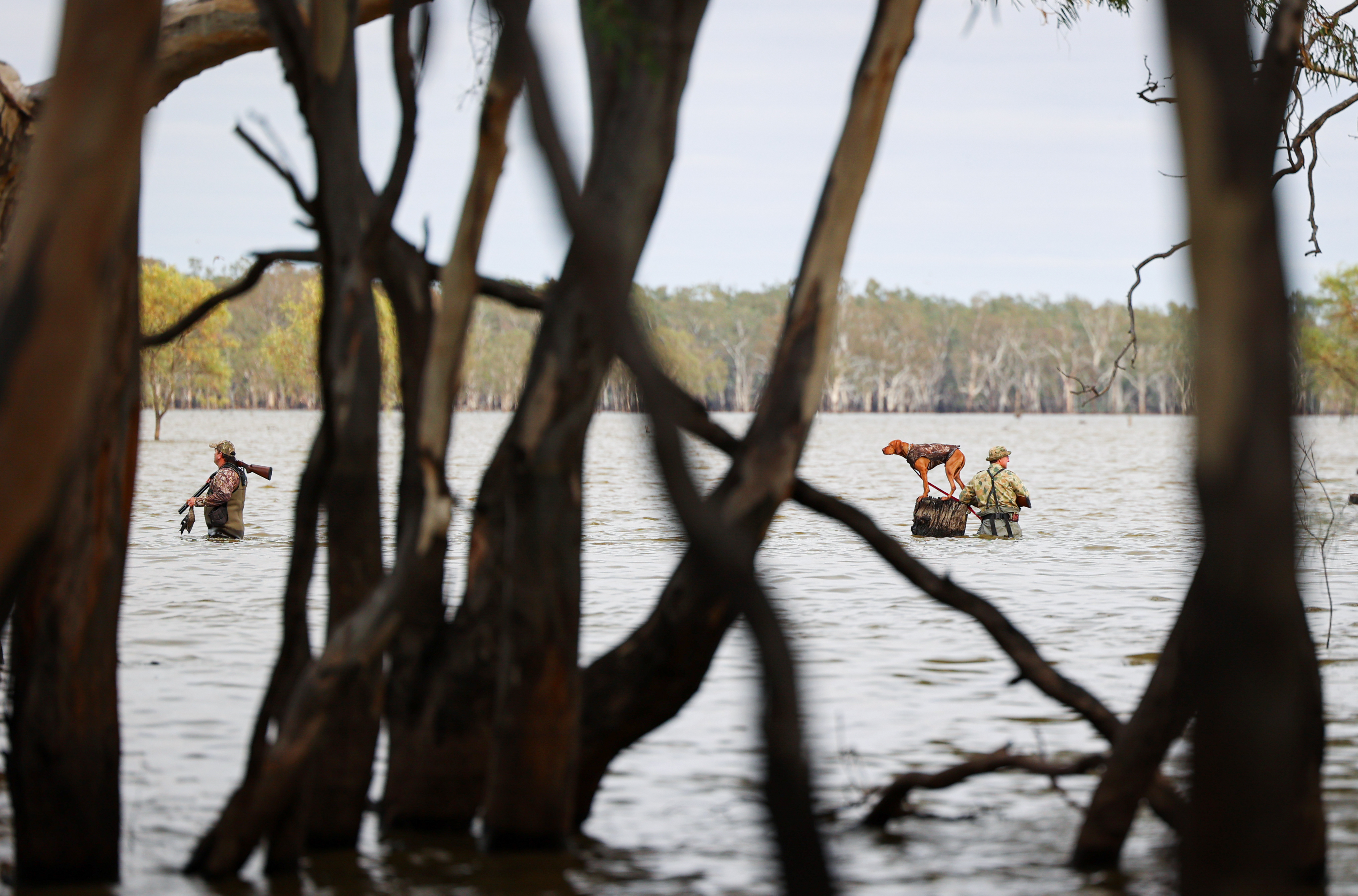
Other hunters pivoted to scout nearby waters. If anything good can be said for all the protestors choking Victoria’s shallow wetlands on the first day of duck season, one hunter told me, it’s that they bounce birds around.
A scant few groups decided to stay for the circus. To leave would be to give the activists exactly what they want, explains Nicole Mouzakis, who was camped at Wooroonook with her husband, three daughters, and in-laws. That’s how the Mouzakises spent the day dealing with protestors, who had erected a small town of tents complete with a fleet of sit-on-top kayaks, triage stations for injured ducks, and porta-potties.
The protestors in turn attracted a steady stream of TV broadcasters, politicians of varying allegiances, game wardens, local police, and Field and Game Australia staff.
“An older gentleman had walked into the water [and] went up to my father-in-law and he started [verbally] abusing him, calling him names, calling him a ‘fat pig’ and saying that he can’t shoot and he’s missing,” says Mouzakis, who reported that protestors also yelled at her, snooped around their camp, videoed her children despite laws against photographing minors, and even followed the girls into the woods when they needed the latrine. “It is intimidating. But we’ve got to stand our ground. If they intimidate us, they’re gonna destroy generations of hunters and family gatherings.”
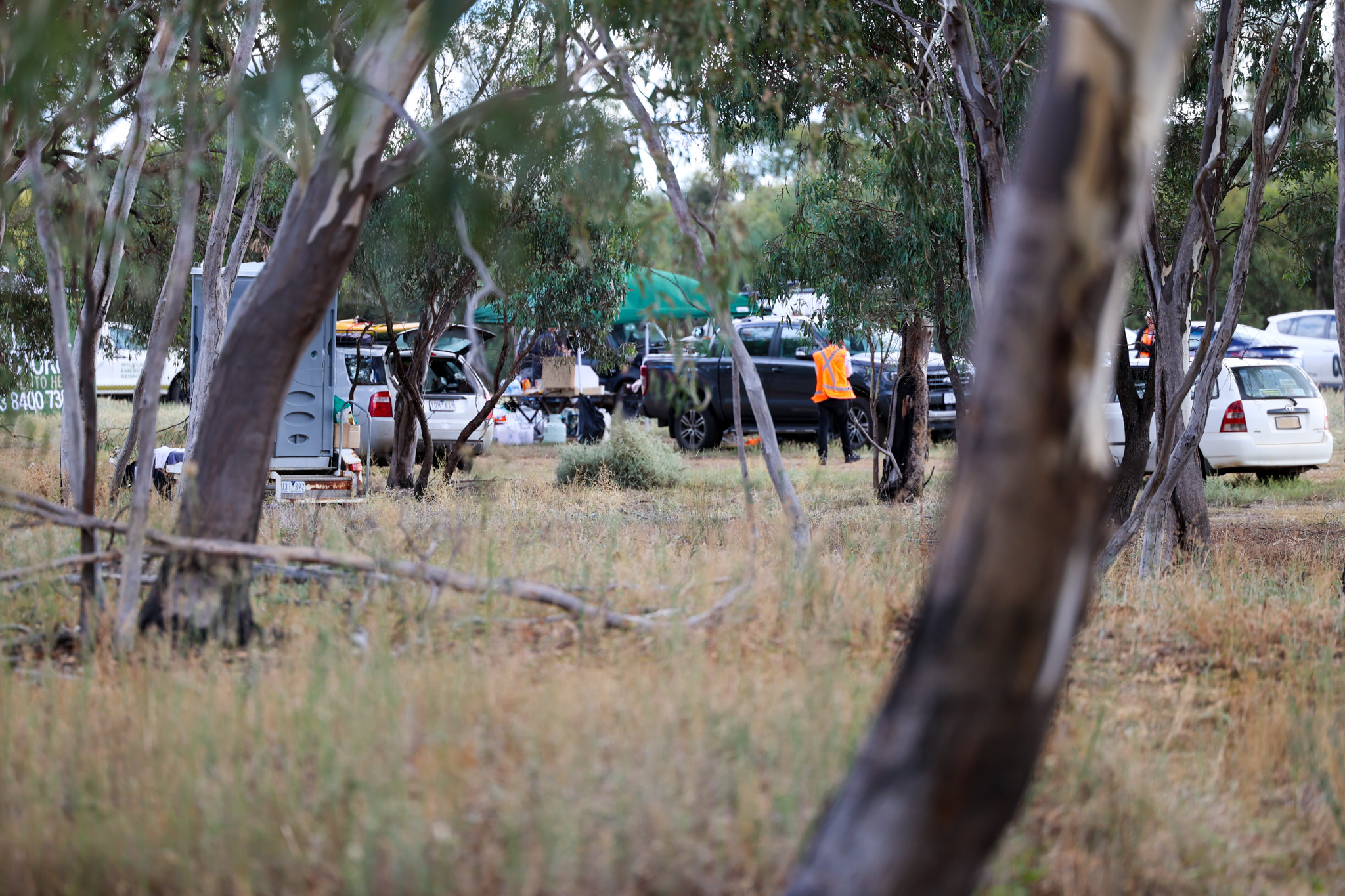
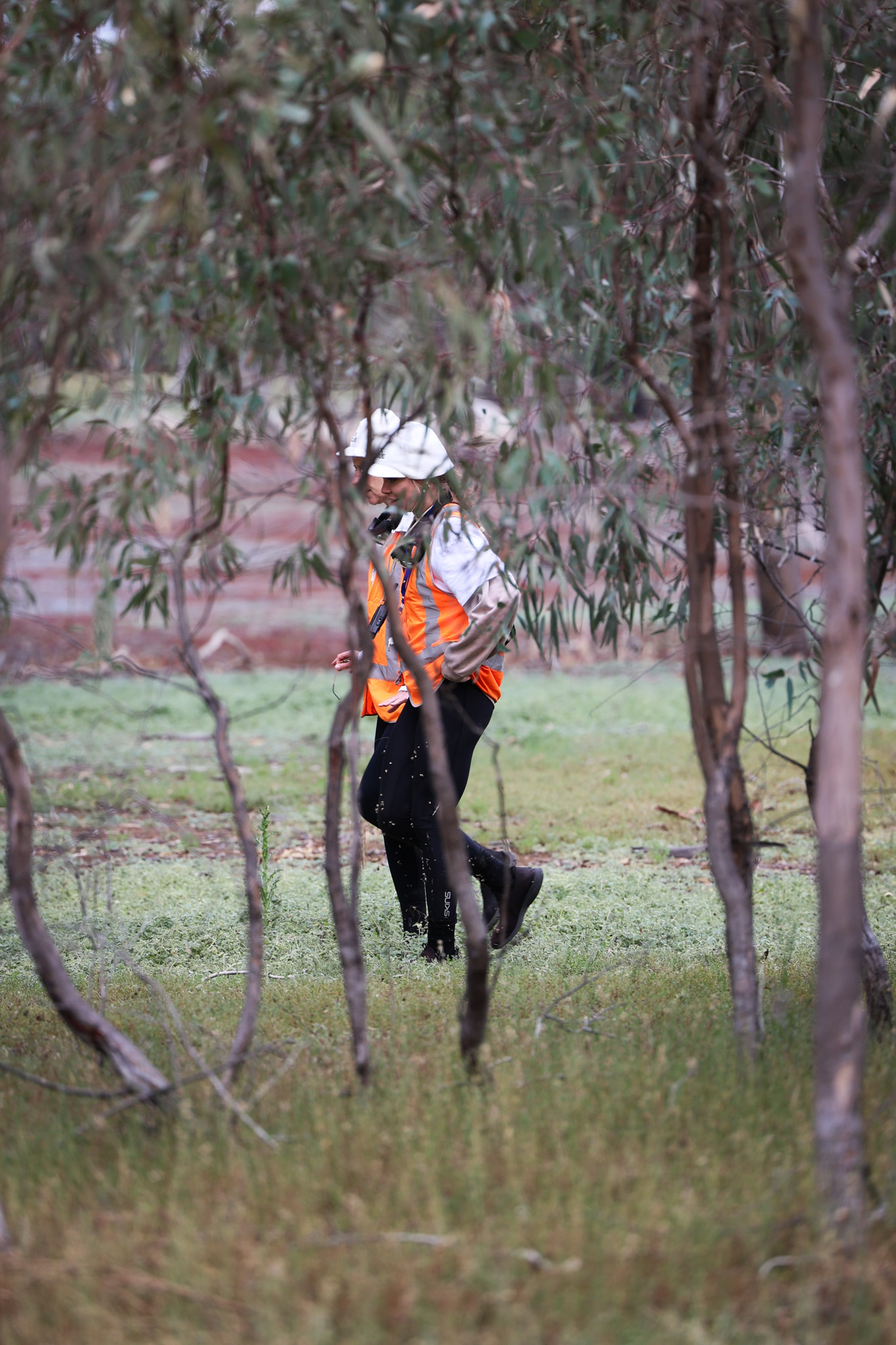
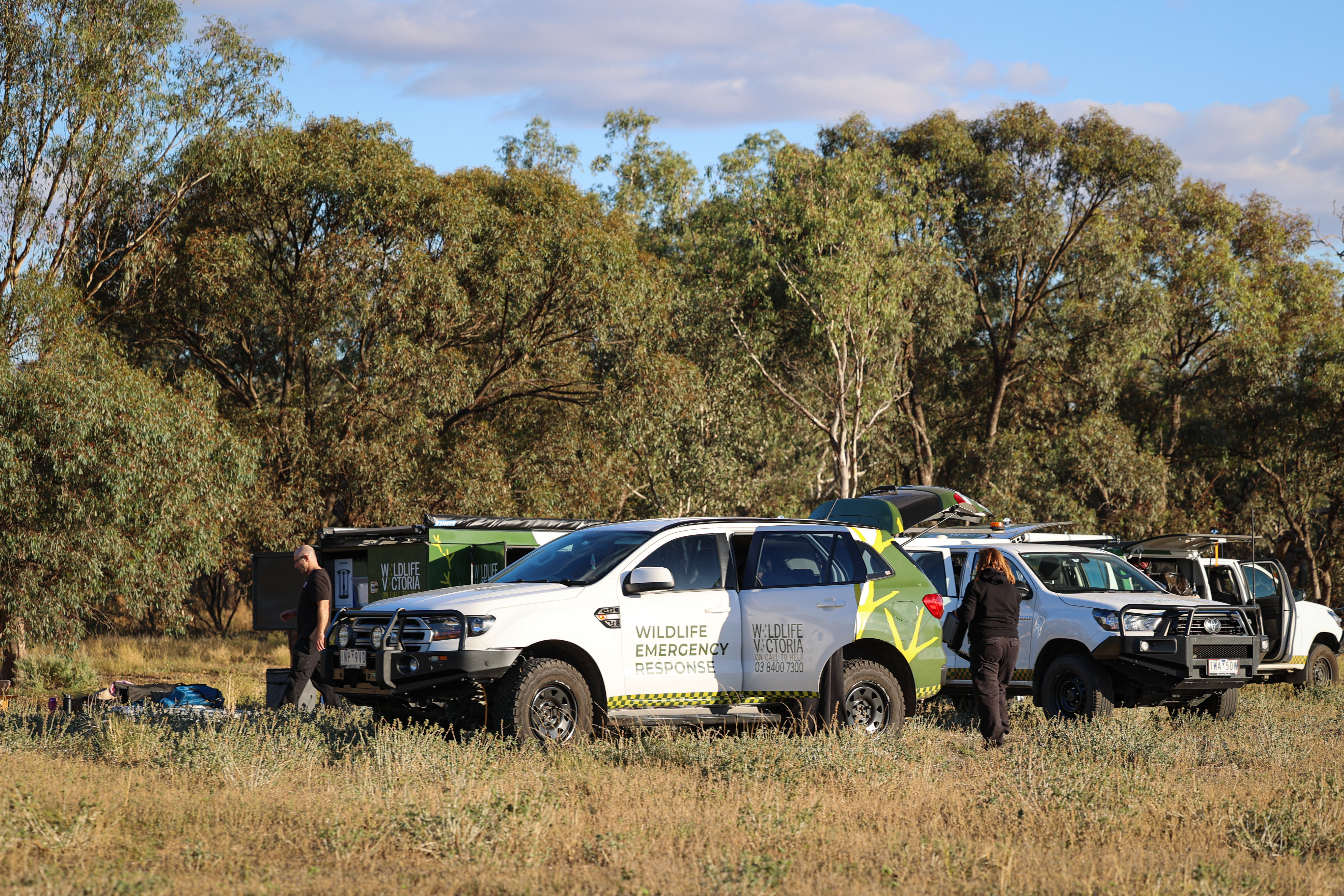
When activists didn’t get a rise out of her father-in-law (Stefano Mouzakis is missing one ear and enjoys messing with people by pretending he can’t hear them) they moved on to her uncles-in-law, calling them “murderers.”
“They were saying the uncles were pointing [their shotgun] barrels at the protesters, which they clearly weren’t,” says Mouzakis. “The protesters were hurling abuse at the shooters. And the shooters are doing nothing wrong.”
Guns are a frequent touchstone in the battle over hunting in Australia. Hunters also contend with the added responsibility, and often stigma, of firearms ownership in an anti-gun society. Following a mass-shooting in the state of Tasmania in 1996, Australia imposed a mandatory national buyback of nearly all semi-auto and pump actions; most duck hunters today use over/unders. Strict firearms ownership laws are a major reason you don’t see more duck hunters getting into fights with antis at the boat ramps.
“[Protestors have] nothing to lose,” Leen says. “If we [hunters] lose our cool, we can lose our license, we can lose our firearms. We’ve got everything to lose. So we’re at a distinct disadvantage where we can’t tell them what we think.”
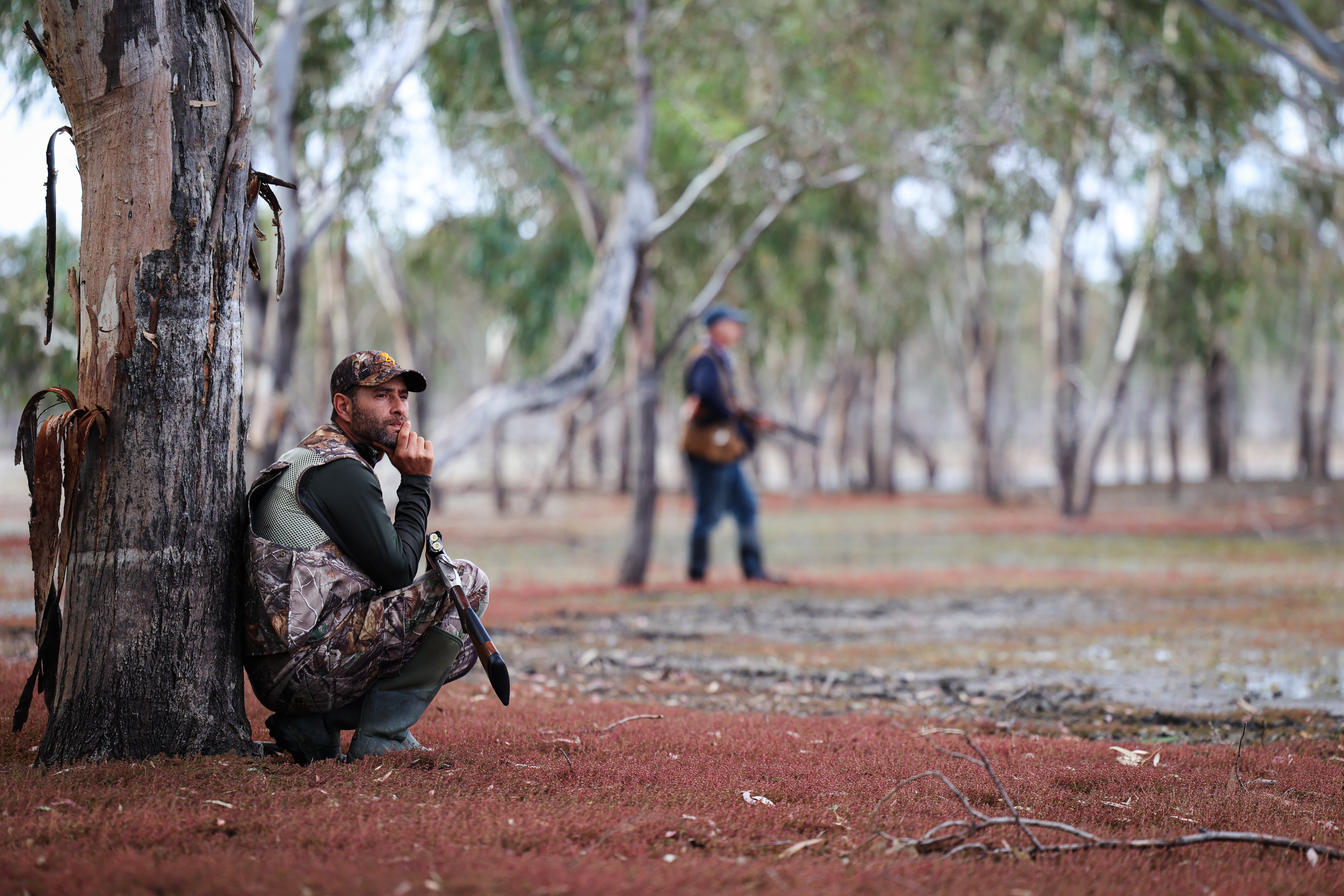
Mouzakis hunts quail, but neither she nor her two younger daughters have passed their WIT or gotten their duck licenses yet (the minimum hunting age in Victoria is 12, with restrictions). All three were required to follow the same regs as the anti-hunters: They weren’t legally permitted within 25 meters of the water except from 10 a.m. to 2 hours before sunset, nor were they allowed to touch or handle any ducks. So Mouzakis spent much of her time restraining active young kids who are eager to hunt with their dad and don’t fully understand why they can’t.
This delighted the Wooroonook protestors, who repeatedly reported the family when the girls drifted too close to the water. They also went so far as to break out tape measures to establish those boundaries, and to ensure hunters’ camps were the minimum regulation distance from the water.
“Activists are getting very desperate because they know that hunters have well and truly woken up to the fact that they cannot do one single thing that even looks like crossing the line,” says Falla, who spent his opening morning reminding hunters to toe that line at a neighboring lake instead of hunting with his own dad, as he used to.
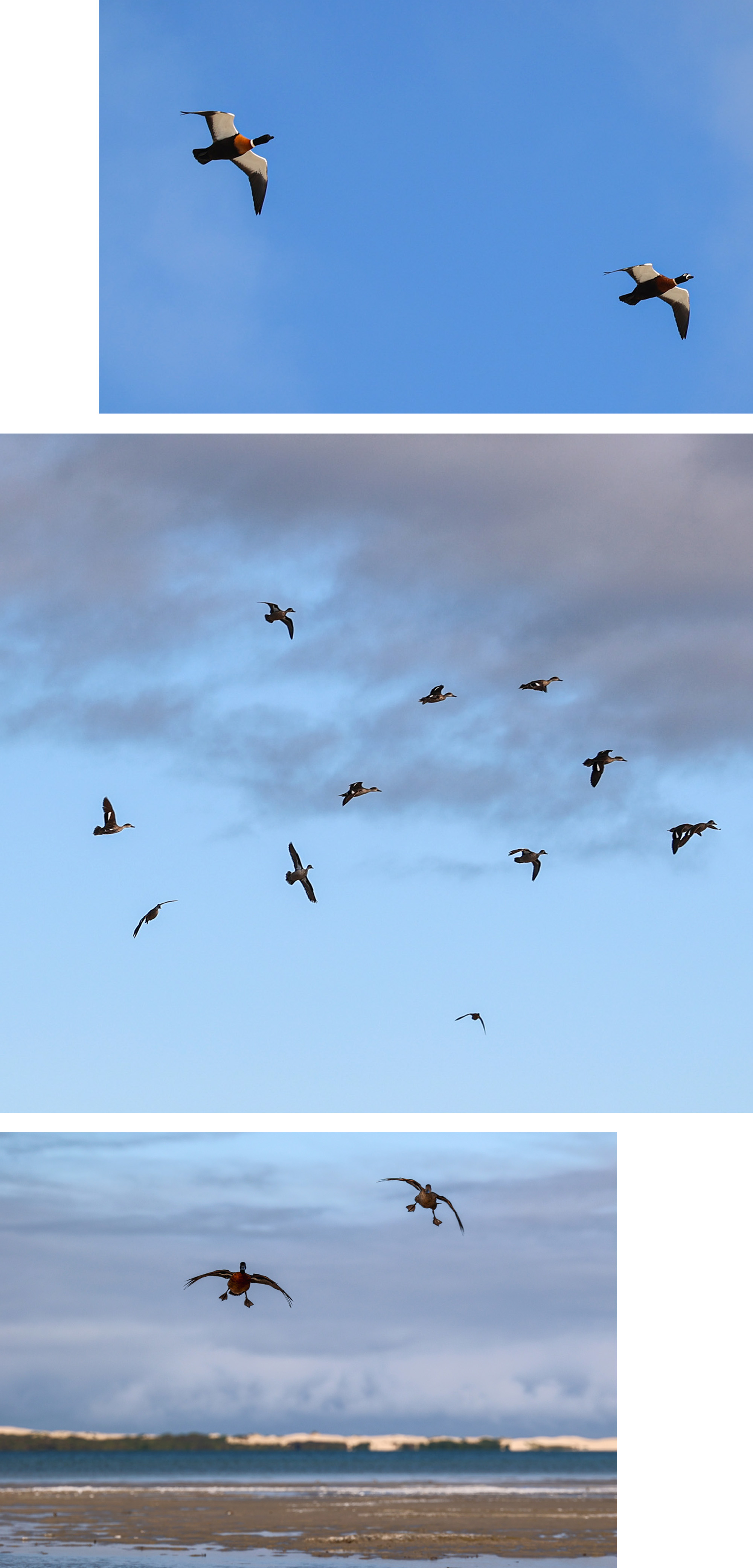
Meanwhile masked activists were trying not to get caught breaking laws themselves. The two youngest Mouzakis girls, Sienna and Milania, had a pair of pink and purple walkie talkies that, they discovered, allowed them to listen in on the activists’ channels. That morning they overheard one woman radioing for help, screaming that she had recovered an injured duck but didn’t have her license and needed an ally to grab it. Another wasn’t wearing a life jacket while on the water and “didn’t want to cop a fine,” says Mouzakis. At one point protestors tore right through their camp while running away from police. On our way to visit them, Falla and I bumped into a sort of plainclothes activist scout in a beater sedan that was missing both license plates. (All the activists I attempted to speak with for this story declined to comment.)
On Monday the Victoria Game Management Authority released a report on hunter and protestor compliance. This season officers stepped up their patrols and found just 26 total hunting offenses for the season; meanwhile 22 banning notices were issued for activists, up from just two last year. (One of those banning notices was served to Natalie Kopas, who hindered Leen’s black duck hunt).
It would be tempting to chalk all this up to the aftermath of the failed duck hunting ban: Protestors are pissed off they lost and are acting out accordingly. That’s partly the case, but these antics are all too familiar to the Mouzakis family, who emigrated from Greece. Tass Mouzakis, Nicole’s husband and a carpenter by trade, likes to pass-shoot birds during a social opener rather than grind all season long. (“The decoys are to claim our spot,” his brother, David Mouzakis, told me.) He says hunters like him — who seem to make up the bulk of Victoria’s hunting population — had a bad experience last year, and in previous years.
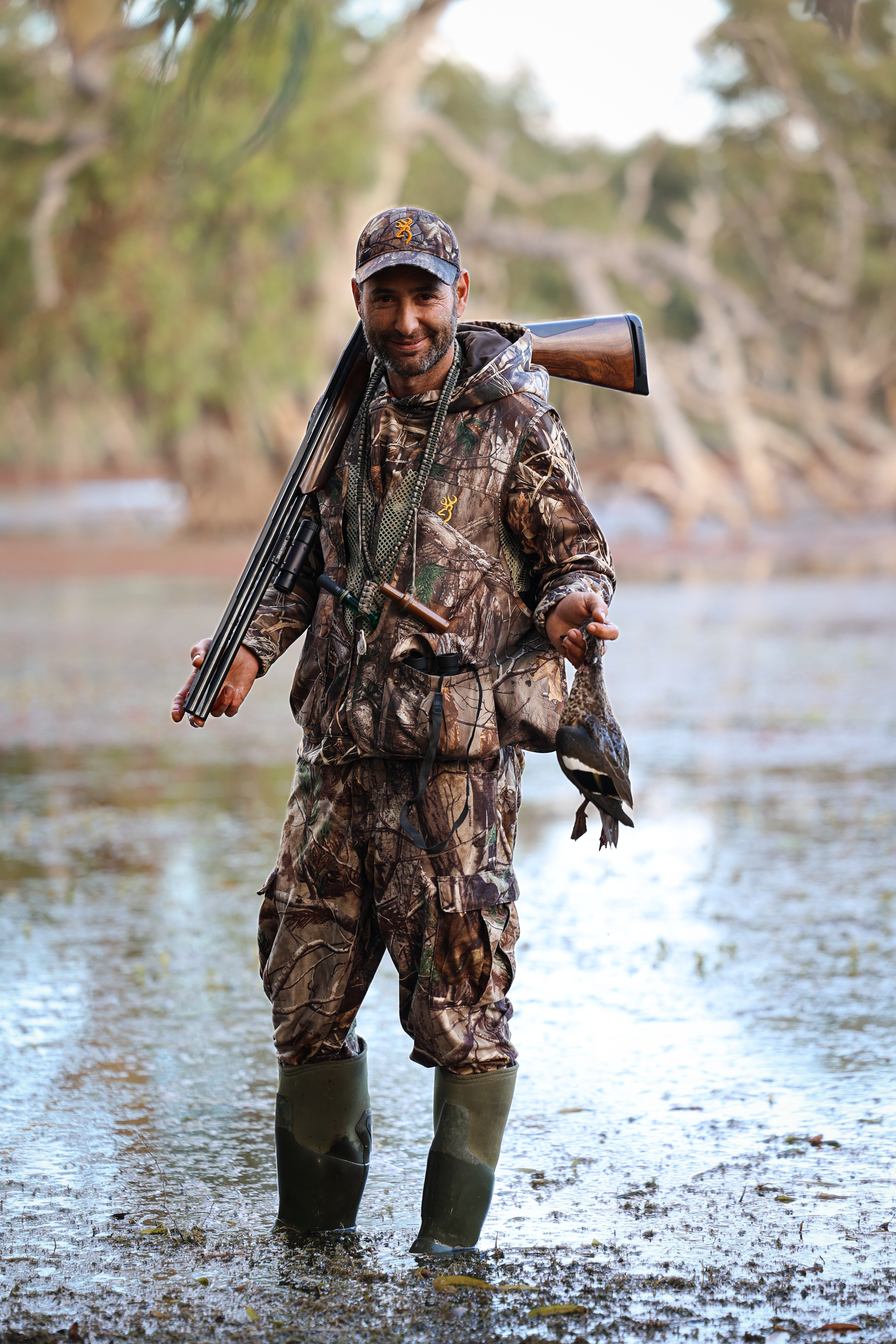
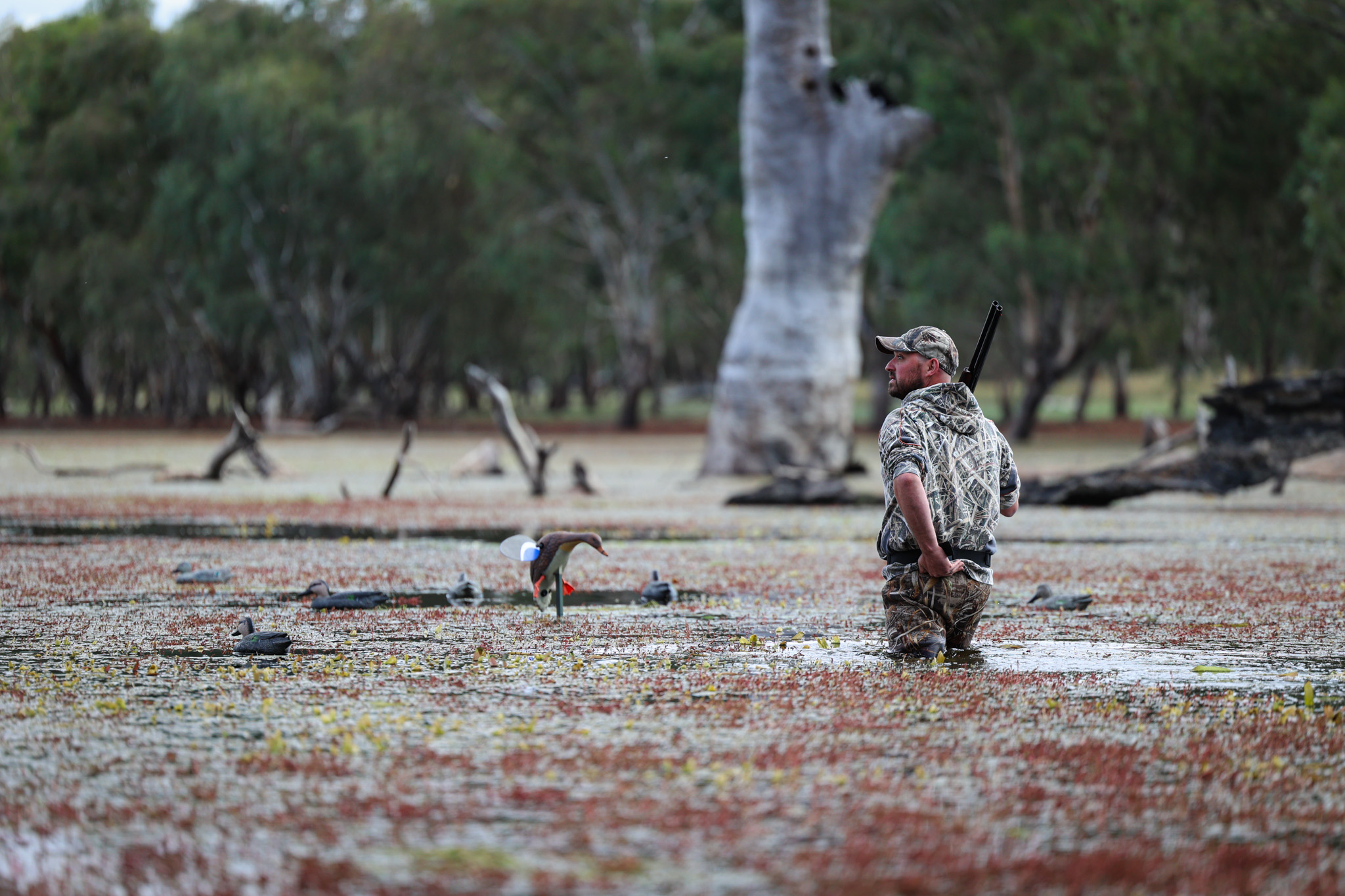
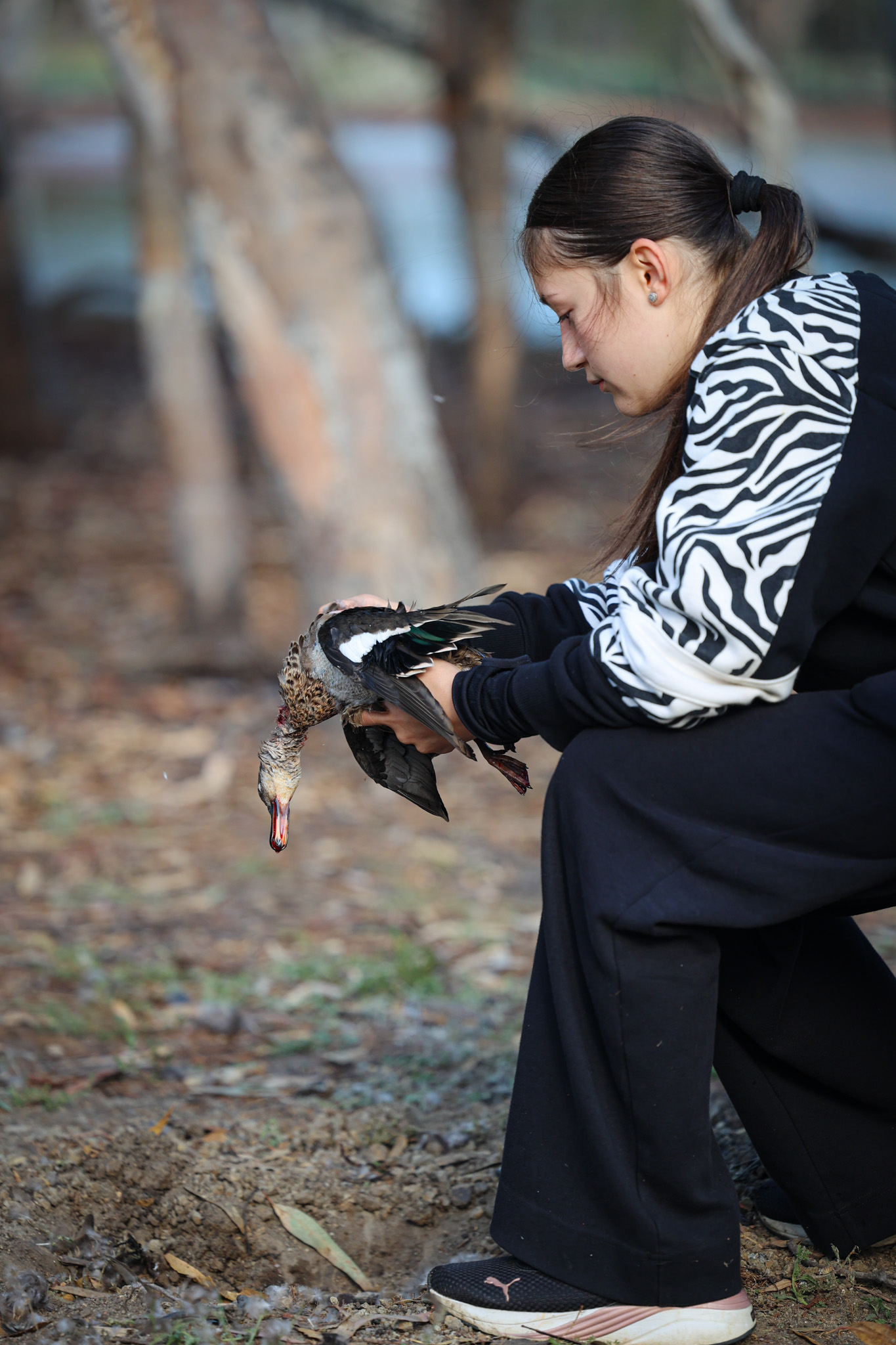
“They just hounded us the whole time. You take a shovel to go to the toilet and they think you are digging a hole to bury ducks in [instead of eating them], and they’re trying to dig up what you’ve gone and done. No privacy, no respect. Camera on us. We’re at camp playing Uno after a shoot and they’re just videotaping us for two hours,” says Tasso. “But we’re grateful for [most game wardens and associations like Field and Game] and we want to keep the tradition going. That’s what it’s about. Look at these young ones. They love it.”
It was true that, despite everything, the Mouzakises seemed to be having fun. Only their oldest daughter, 13-year-old Isabella, seemed ill at ease with all the protestors and visitors, like me, who showed up in their wake. She had recently gotten her duck license but this can’t be the kind of family hunt she was looking forward to. As the adults talked around her, she picked up one of the teal her dad had scratched out amid the chaos and retreated to the edge of camp. Silently, she bent over the bird and began to pluck it whole for dinner.
A Cautionary Tale
Duck hunters in Australia exist in a future dystopia of extreme regulation, but their gear and hunting tactics are reminiscent of how U.S. duck hunting looked in the late 1980s and early 90s.
Many hunters wear vintage and army-surplus camo not because it’s trendy, but because that’s all they can get. One hunter I spoke with mentioned his wife had to sew his Vizsla’s neoprene vest since he couldn’t find one. As the threat of the duck hunting ban loomed, retailers stopped importing duck hunting gear (like the U.S., Australia has outsourced much of its manufacturing to Asia) creating scarcity. There’s currently a steel ammo shortage and new waders are missing from shop shelves. Decoys are hard to come by, and many hunters don’t know how to use them effectively or can’t given the 8 a.m. start time. Roughly two thirds of hunters don’t have boats and, surprisingly to me, about the same don’t use retrievers. All that’s due, in part, to the uncertainty of a ban.
“Hunters haven’t been prepared to buy that puppy while their dog gets older because you didn’t know if you would be able to give that gun dog a gun-dog life,” says Falla, who plans to get a puppy as soon as possible; Leen has gotten a new puppy since our hunt.
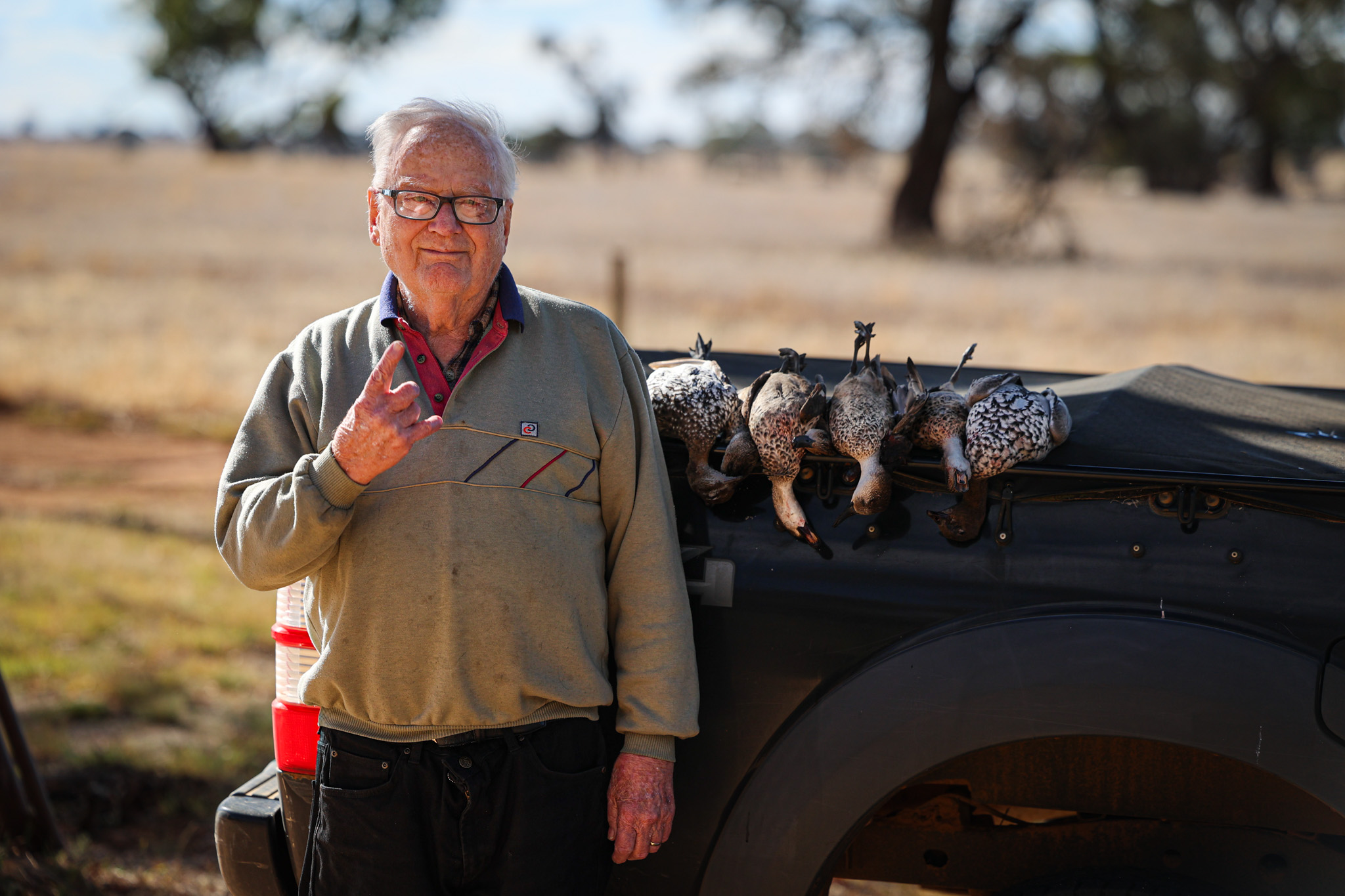
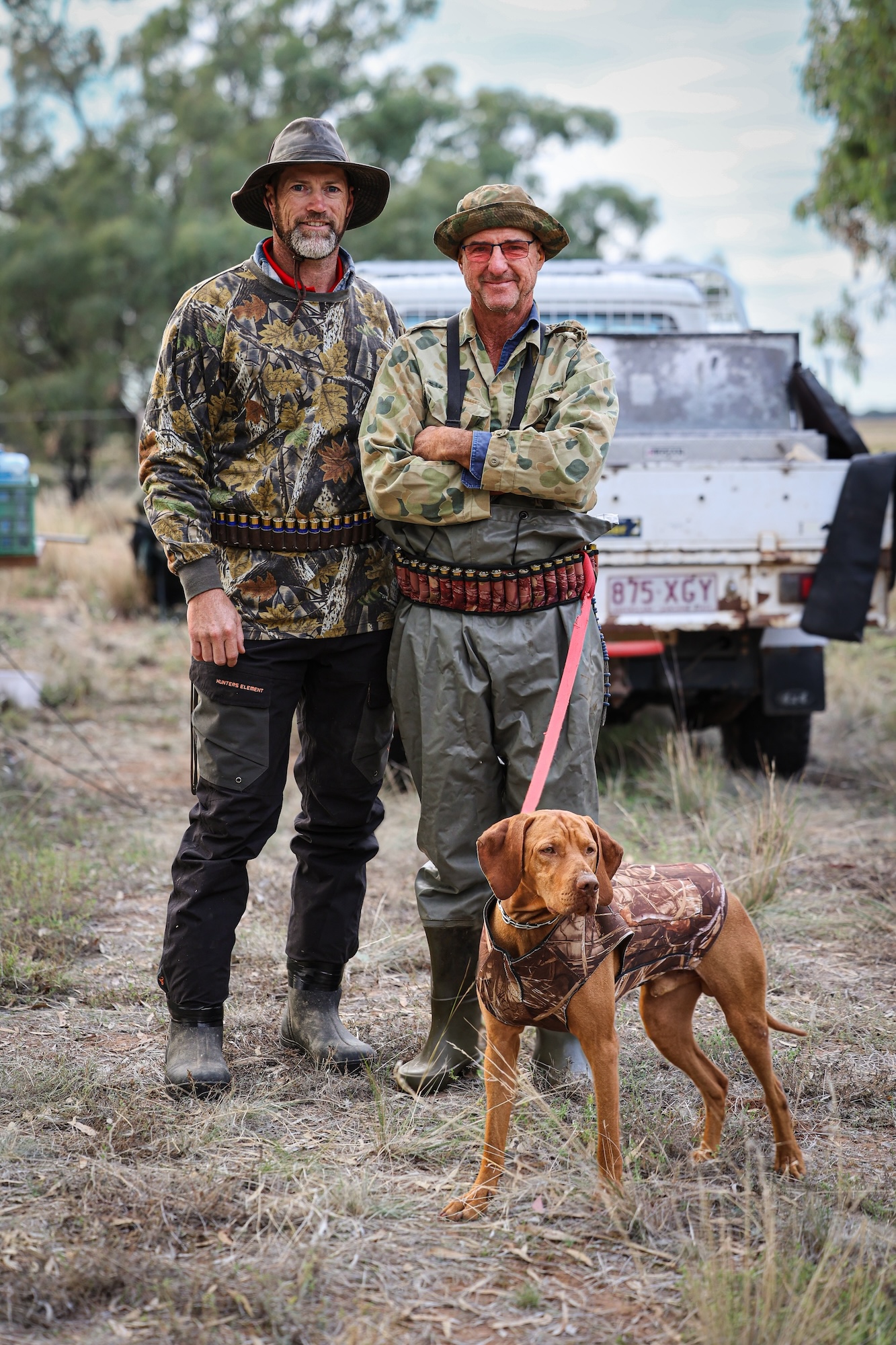
Meanwhile hunter participation is declining among duck hunters, prompting organizations like Field and Game to recruit in earnest. In 2023 there were just 22,043 registered duck hunters in Victoria , or .3 percent of the state’s population. Worse, Victoria makes up most of Australia’s waterfowlers; total duck hunter numbers in the country are incomplete but, by the best estimates, just .1 percent of Australians duck hunt. This low participation rate reduces public support and is frequently cited as an argument for shutting down duck hunting. Various surveys conducted by both sporting groups and anti-hunting orgs in Victoria estimated public support for banning duck hunting ranged from 45 to 87 percent over the last decade. In other words that’s at most 55 percent public support for, or indifference to, duck hunting. In the U.S. public approval for hunting dropped from 81 percent of Americans in 2021 to 77 percent in 2023. Declines were most notable among America’s youth, minorities, and suburbanites.
Even as Victoria has narrowly escaped its ban (for now) more sporting restrictions are popping up continent-wide. Western Australia recently passed legislation to further restrict gun ownership to six total guns, none of which may be the same gauge or caliber. The Northern Territory (known among hunters for its mango-eating magpie geese that evolved to roost in trees to avoid saltwater crocodiles) proposed that only NT residents can purchase ammo and all out-of-staters must hunt with a resident. Victoria’s duck hunters have resigned themselves to the fact that duck hunting as they knew it is irrevocably changed. In short: Once you lose hunting privileges, it’s nearly impossible to get them back.
“What’s going to happen when Australia closes [hunting]? Anti-hunters are just going to put up their toys and go away? Hell no,” says Russell, the international hunt broker who has also advocated against the ban and recently released the documentary Battleground Australia. “It’s going to be a domino effect. Victoria falls, [then] South Australia, other provinces in Australia. Now what? Now emboldened by their win, how many more dominoes fall before they’re sitting in our own backyard? As preposterous as it sounds there are some pretty insidious anti-hunting organizations at play right now in North America. They’re not going to our boat ramps, they’re not waving stuff in our face, they’re not even attacking us on social media. They’re behind the scenes.”
Familiar and well-funded anti-hunting organizations like the Center for Biological Diversity are at the core of much anti-hunting legislation in the U.S., but newer organizations are gaining momentum. The Center for a Humane Economy was founded in 2018 by Wayne Pacelle after he resigned from the notoriously anti-hunting Humane Society of the U.S. amid sexual harassment allegations. Right now activists for Cats Aren’t Trophies — formed in 2023 — are collecting Colorado voter signatures in hopes of putting a ban on mountain lion and bobcat hunting on the ballot this November. Wildlife for All was founded in 2021 with the primary goal to “reform state wildlife management to be more ecologically-driven, democratic and compassionate.”
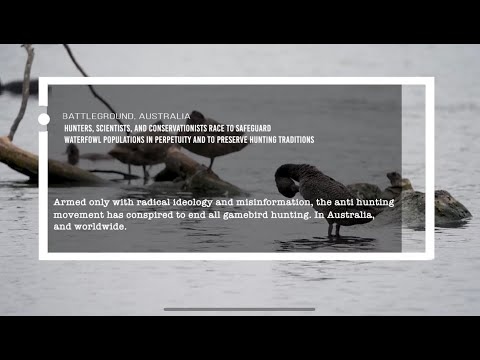
“These [types of] organizations are lobbying very hard to disassociate gun- and hunting-related funding from DNR budgets,” says Russell. “Their argument is as simple as this: ‘Waterfowl is a public-trust species, it belongs to 330 million Americans as managed by the federal government and thereby state agencies. If that’s the case, we don’t need maximum sustained yield when there’s only 900,000 waterfowl hunters in America. Why are all these agencies working hard to make a lot more waterfowl for a million waterfowlers when there are 330 million Americans taking ownership of this. It’s biased and it’s flawed,’ they say.”
These arguments are working in some places. As we’ve previously reported, advocates in Washington State are trying to downplay the role of hunters in managing populations of wild game and instead “emphasize the intrinsic value of individual animals and healthy ecosystems.” In March 2022 Washington wildlife commissioners voted to shut down the state’s spring bear season despite recommendations from agency staff that the hunt was ecologically sustainable. Vermont only recently scaled back proposed changes to its wildlife board that could have opened seats for anti-hunters. Political maneuverings like these will sound all too familiar to Australian hunters.
Revenue generated by Victoria’s duck hunting licenses was diverted from wildlife habitat funding to the general fund years ago, says Falla. Similar legislation was introduced in Nebraska earlier this year to raid roughly $10 million from the state’s Game and Habitat Funds and funnel those dollars into the state’s general fund, thereby also jeopardizing millions in Pittman-Robertson funding. The same tactic was proposed in Pennsylvania but later overturned. In 2022 a Georgia rep introduced the RETURN (Repealing Excise Tax on Unalienable Rights Now) our Constitutional Rights Act to eliminate the 11 percent federal excise tax on firearms, ammo, and archery equipment that funds conservation in America. It died, mercifully, in Congress, but not before 51 Republicans signed on.
“Unfortunately it’s all political here,” says Craig Stoddardt, another hunter from Wooroonook. “Our big change has been the last 25 years of the young, the social, the greens. Have a look at the population of Melbourne, it’s almost bigger than Sydney. These people are not necessarily rural people so they don’t come from hunting backgrounds. Like a lot of the Europeans once upon a time used to hunt, so they were keen to hunt when they moved here. But now it’s just all people who spend all their time in the city and don’t even look at a tree. And then they want to have a say one day a year because they think we’re doing the wrong thing.”
Just two days before the Victoria opener, activists helped shut down 32 public wetlands by reporting protected species using them; wetlands may be closed to public hunting with little notice if, say, an orange bellied parrot is roosting nearby or there are too many non-game duck species on the marsh. Many of these closures were located close to cities and suburbs, since they are convenient for activists to monitor.
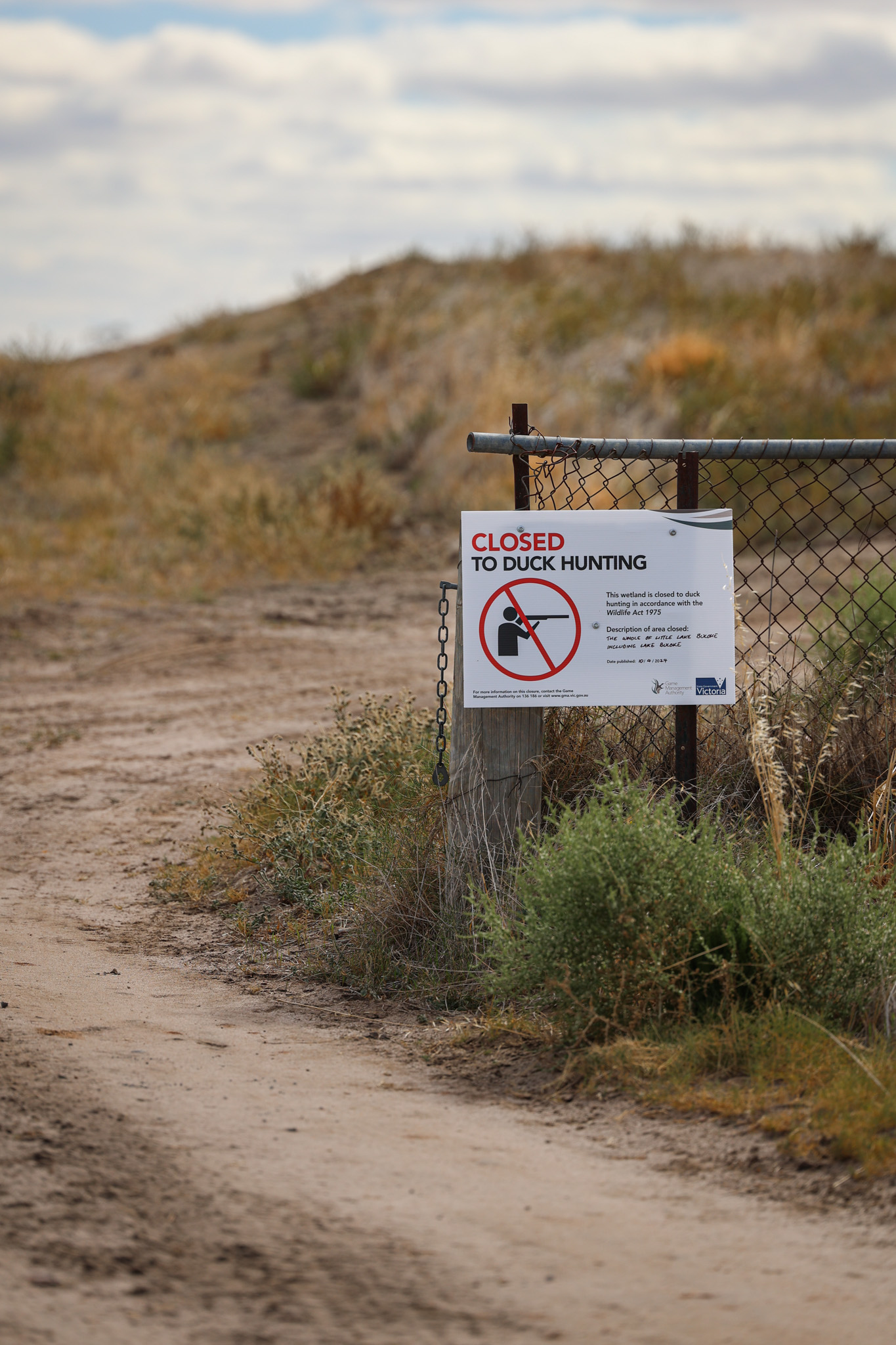
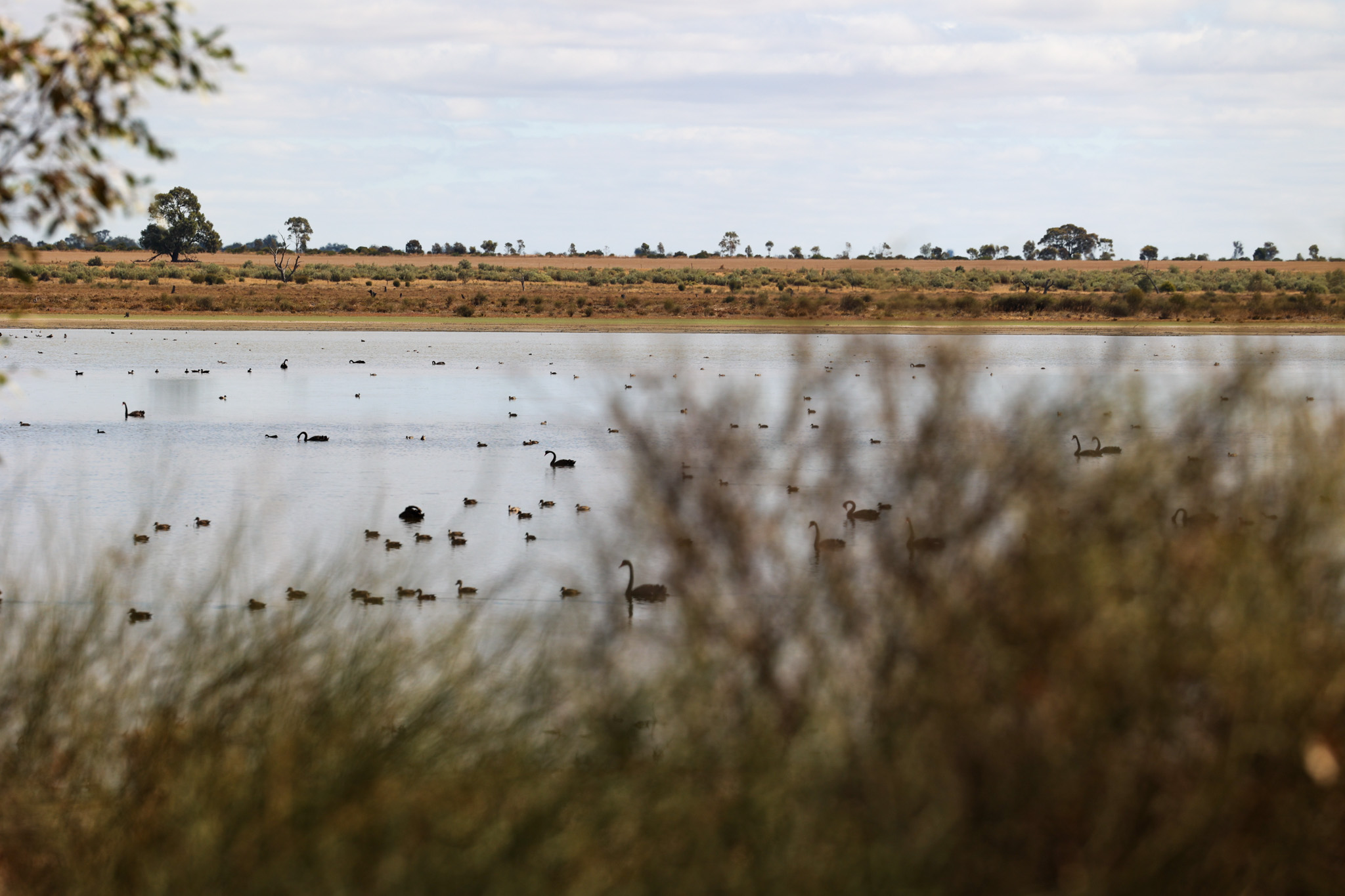
Public hunters living in and around large urban areas, who are already squeezed for time and access, often see their favorite spots shut down first. The same thing happens here in the States. For example, San Diego has repeatedly considered shutting down the waterfowl program at Barrett Reservoir due to budget cuts; other lakes within city limits have been shuttered for years. Like much of the public duck hunting in California, the Barrett Lake Waterfowl Hunt is already highly regulated, with $70 reservation fees, poker-chip lotteries, and only two days of hunting allowed per week. Reducing the oversight of such hunts would likely reduce their cost.
“General overregulation is an issue,” says Mark Hennelly, the vice president of advocacy for the California Waterfowl Association. “It’s not just public lands. Even owning a gun now in California always gets more cumbersome and burdensome. And if you look at the myriad of regulations we have to follow in terms of firearms, hunting, public access — it’s a disincentive for a lot of people, particularly new people who want to enter into hunting. Some people will say, ‘at the end of the day it’s just not worth it,’ and will take up golf or do something else.”
As Hennelly points out, California has half as many hunters as it did in the 1970s.
“It’s hard to say that’s a direct result of regulation, but a lot of the indications are that the number of regulations and their complexity are having an impact. … And if [Australia’s anti-hunters] are successful there it just establishes more of a precedent and becomes more of a threat [here].”
Recreational duck hunting has been banned since 1995 in New South Wales, which is home to sprawling rice fields, other grain crops, and Australia’s largest city: Sydney. Still, more than 15,000 native ducks were killed in NSW during the state’s 2022 to 2023 native game bird management program for mitigating crop damage. Contracted shooters and shooters with permission are allowed to pull out all the stops with massive per-property quotas instead of bag limits and with no requirement to consume the meat. They may also take species protected in other states, spotlight, and use lead ammo, among other measures.
While casual everyday hunters are forced out of the sport, diehard hunters and those who can afford it shift from public to private land, or fly to another country or drive to the next state where hunting opportunities are better.
Which is exactly why, after a week of run-ins with protestors, shuttered wetlands, and blown hunts, Falla and I load the car with gear and hit the road again, driving six hours west to South Australia for an evening hunt with another buddy. When we cross the state line out of Victoria, we both breathe a sigh of relief.
Escape to South Australia
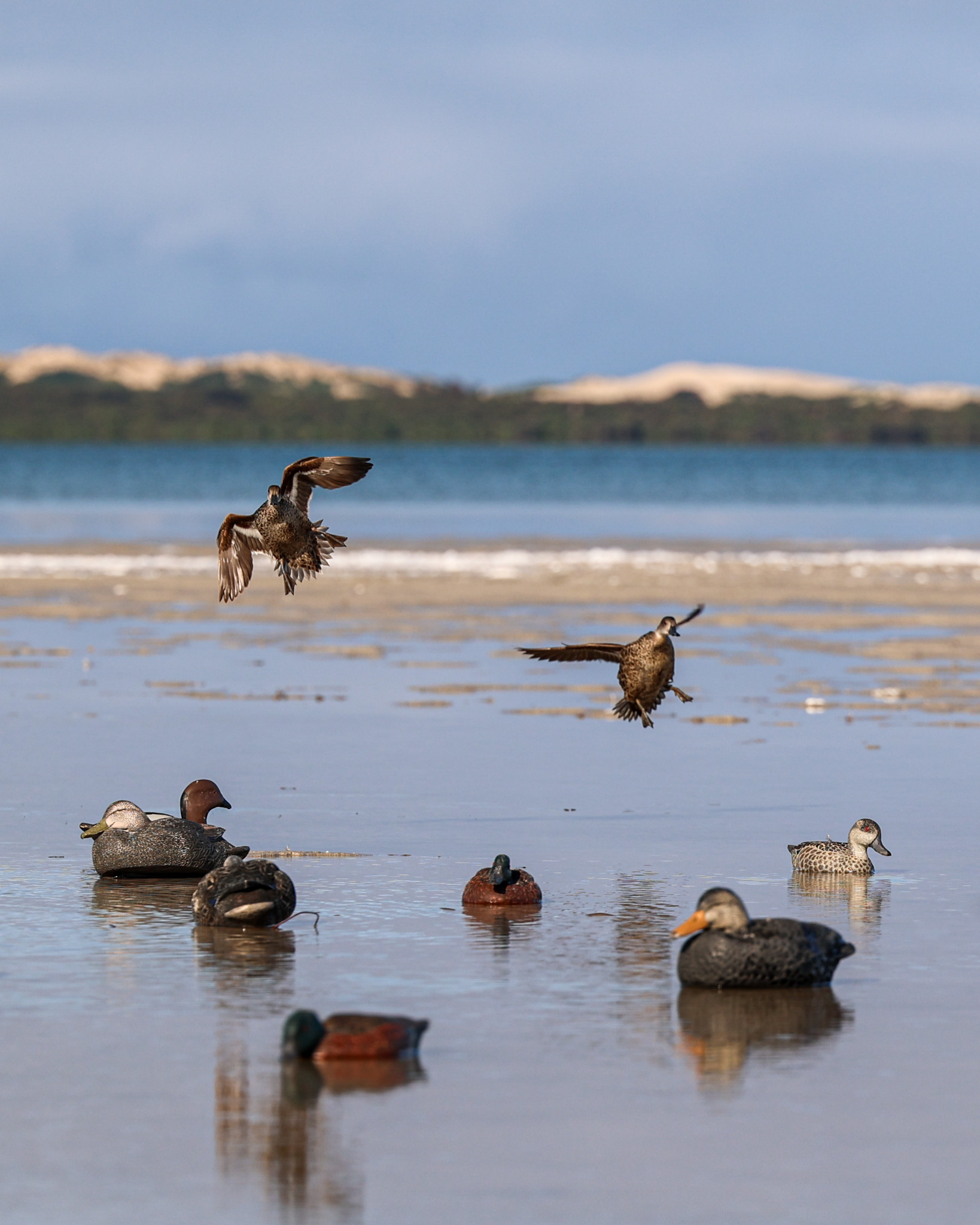
Falla’s FJ Cruiser rolls to a stop and I step into the sand, taking in the shoreline and the thousands of ducks and black swans loafing along it this afternoon. Falla had navigated a rough and bumpy beach road to reach this remote spot. There’s not another person in sight except for his buddy Paul Sharp, and we’re glad to see him.
If it weren’t for his camo Duck’s Unlimited hat and the call lanyard around his neck you could mistake Sharp for a beachcomber. He’s wearing a dark hoodie, dark shorts, and no shoes. Delighted, I toss my own waders back in the truck and follow him at a trot into his spread of hand-painted silhouettes and carved decoys 200 yards away.
This inland alkaline lake is saltier and calmer than the nearby Pacific, and it’s incredible habitat for South Australia’s abundant ducks. Loafing birds will lift off the water all day long and cluster where fresh water trickles into the salty shoreline, producing a steady stream of ducks looking for a drink. We are on the X, and all we have to do is hunker over a pair of milk crates among the silos and wait.
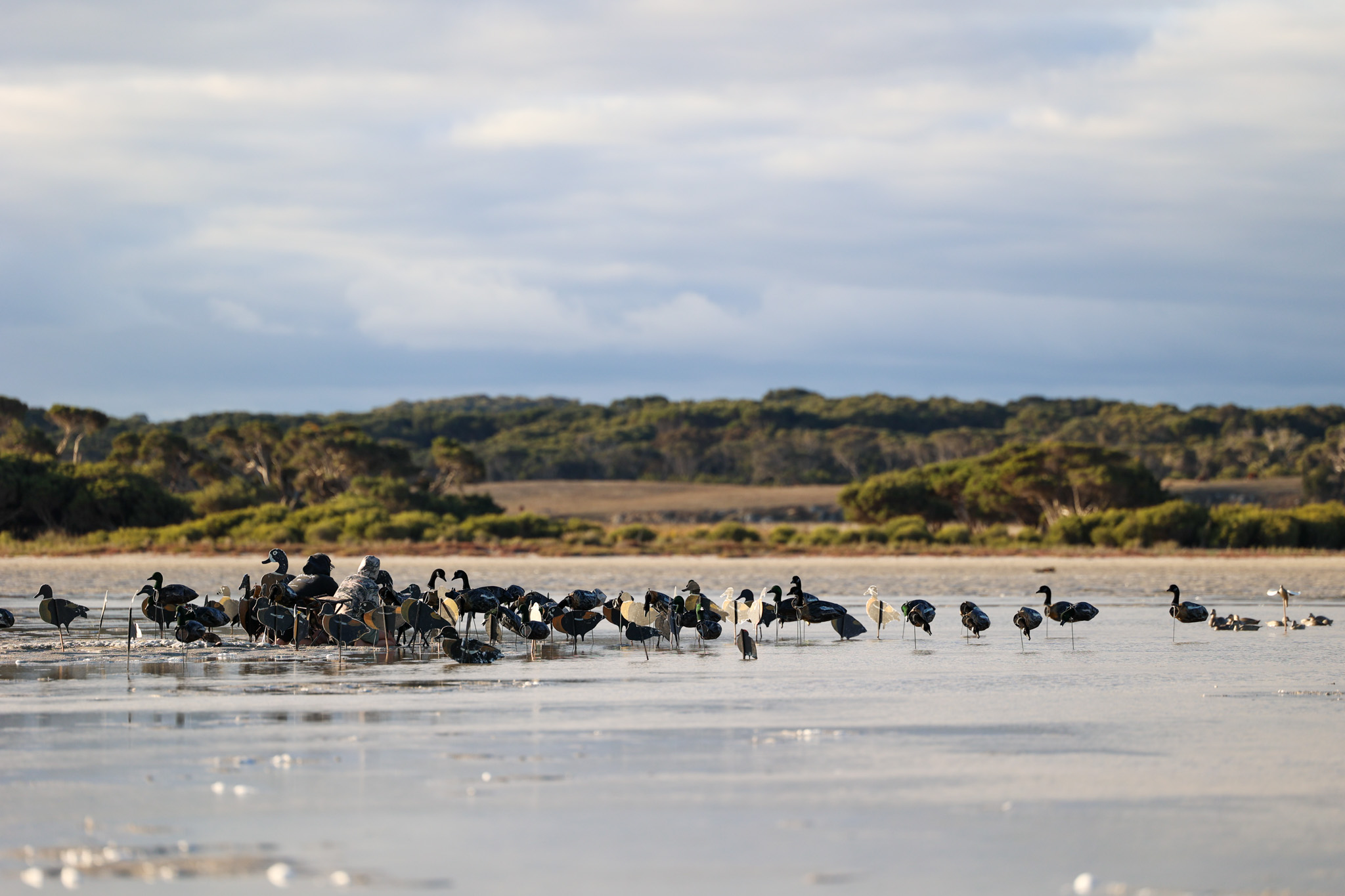
Photo by Glen Falla
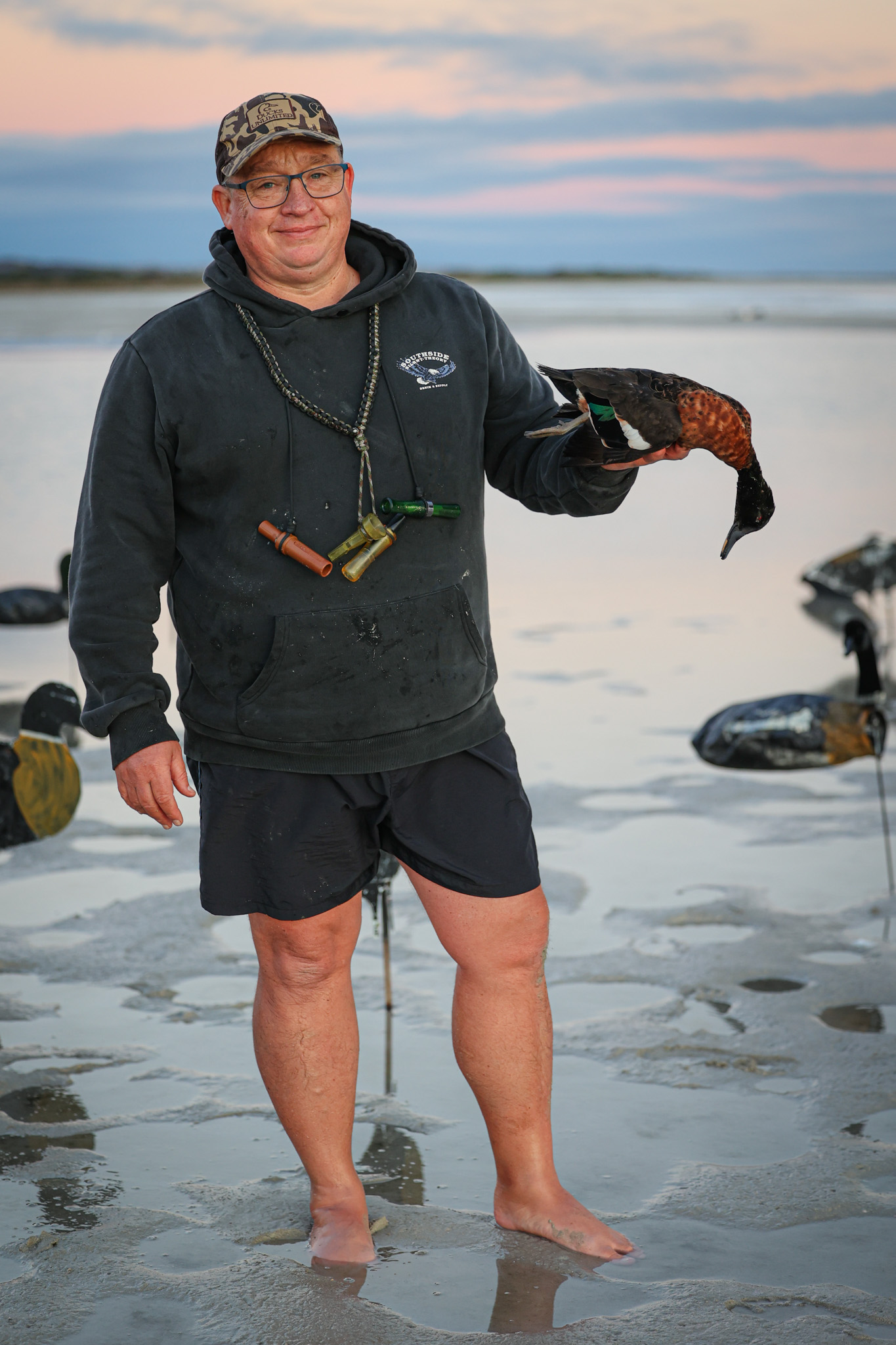
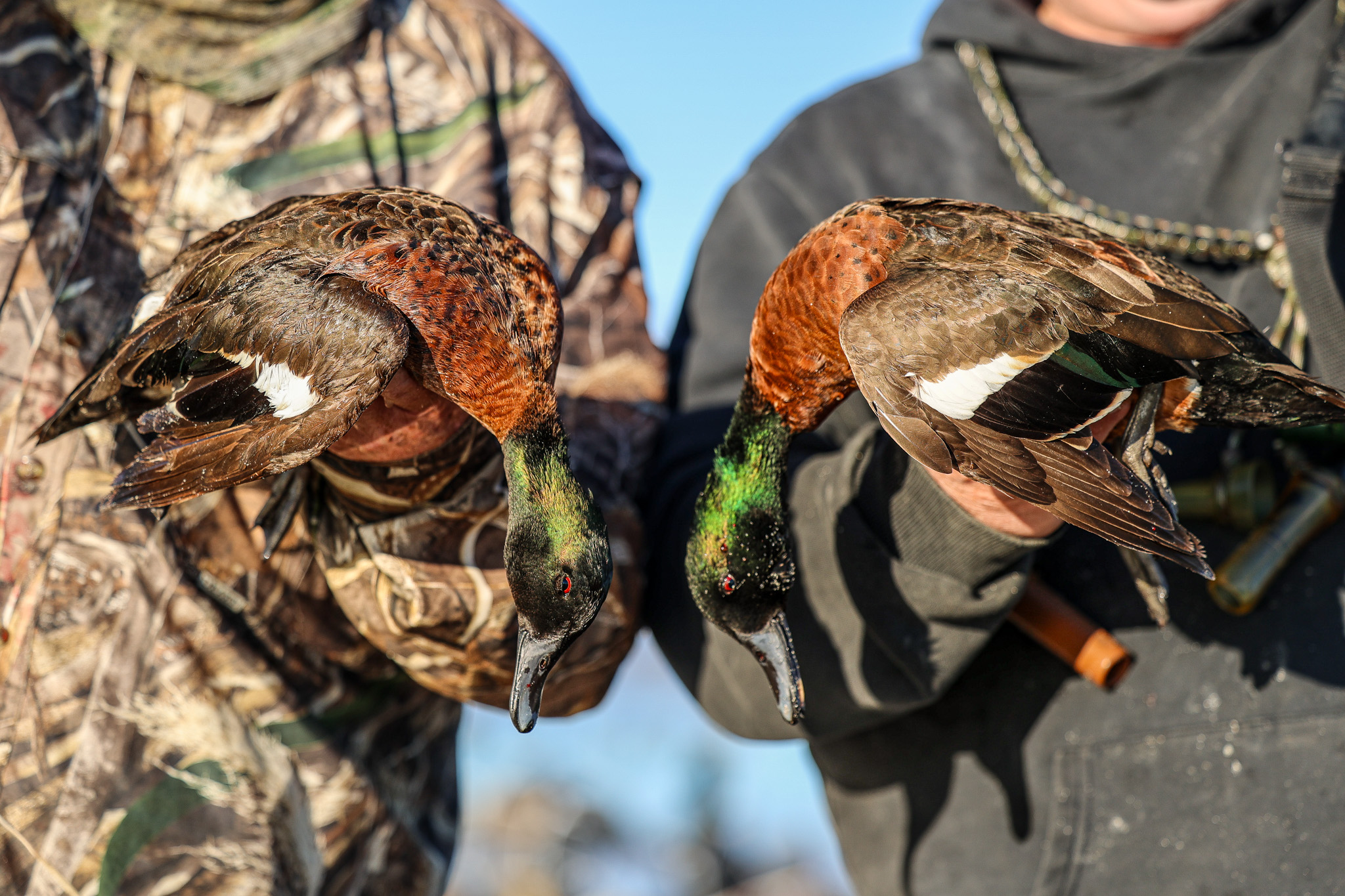
Almost immediately birds begin swinging by in pairs and triples. Sharp is hunting with a massive three-barrel Turkish break-action that I can’t resist trying (Falla calls it a pirate gun, and it looks the part). I shoot behind a few times then catch up and begin dropping teal as Sharp and I get to know each other between waves of birds. It’s easy to mark dove-colored teal on the wet sand and follow up on cripples.
We hide behind enormous silhouettes of mountain ducks, which are almost goose-sized in real life, with unique markings and peeping honks I find absurdly funny. These silos used to be black swans until a law was passed that you couldn’t use non-game species as confidence decoys. Not one to be thwarted, Sharp repainted them. The ducks don’t seem to notice.
For the most part, regulations in South Australia are more relaxed with a 10-bird bag limit, fewer protected species than Victoria, and the freedom to shoot doubles. Protestors are more restricted — they can’t get on the water — and they also have a harder time locating hunters to harass. There are also just fewer hunters; in 2022 there were only 1,127 registered duck hunters in South Australia, a state with roughly the same area as Ontario. (Compare that to Arkansas, which welcomes more than 100,000 duck hunters every year). Instead, antis have focused on intricate humane dispatch practices, such that hunters there are obliged to carry around a little wooden bat to strike ducks on the head.
“It’s the stupidest thing I’ve ever heard of,” Sharp mutters, grabbing the stick as he walks out to pick up another couple teal. But it’s hard for me to summon any outrage today. There are no protesting mobs or convoys of media, politicians, and law enforcement to disturb us or the ducks. It’s wild and wonderful and completely foreign even as it feels so familiar. If it chooses, Australia is fully capable of providing all of this to its hunters, its waterfowl, and its wetlands.
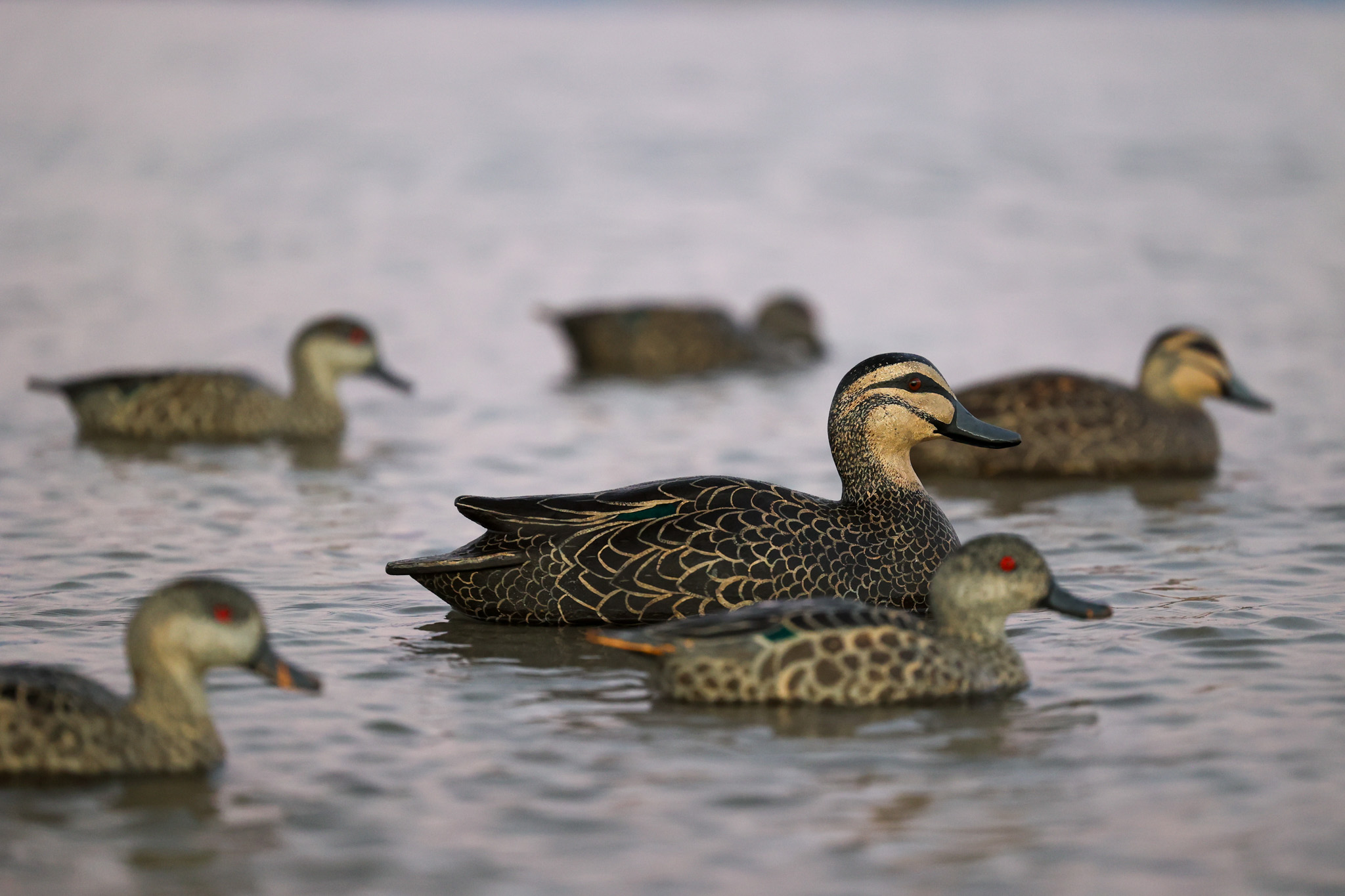
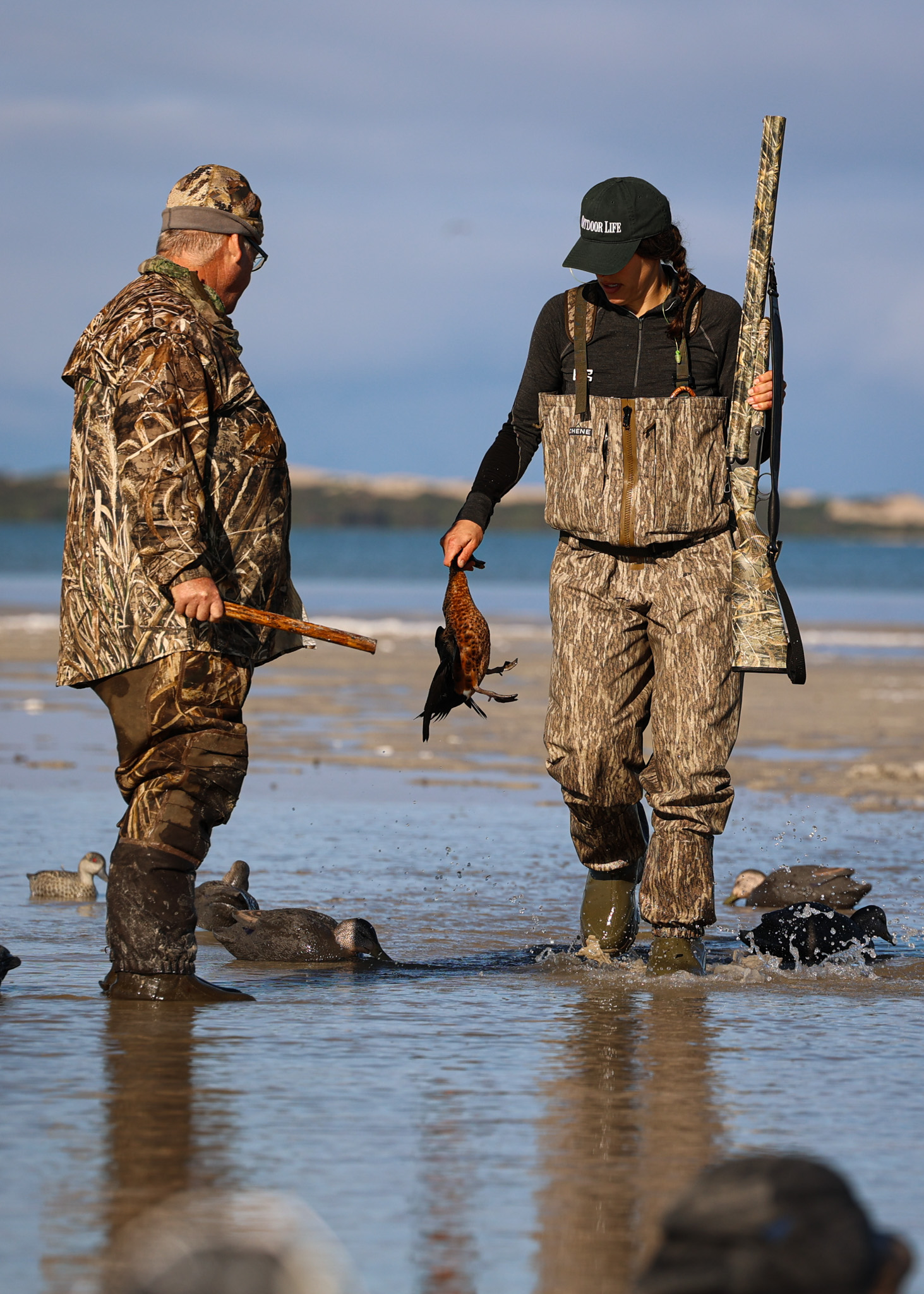
Photo by Paul Sharp
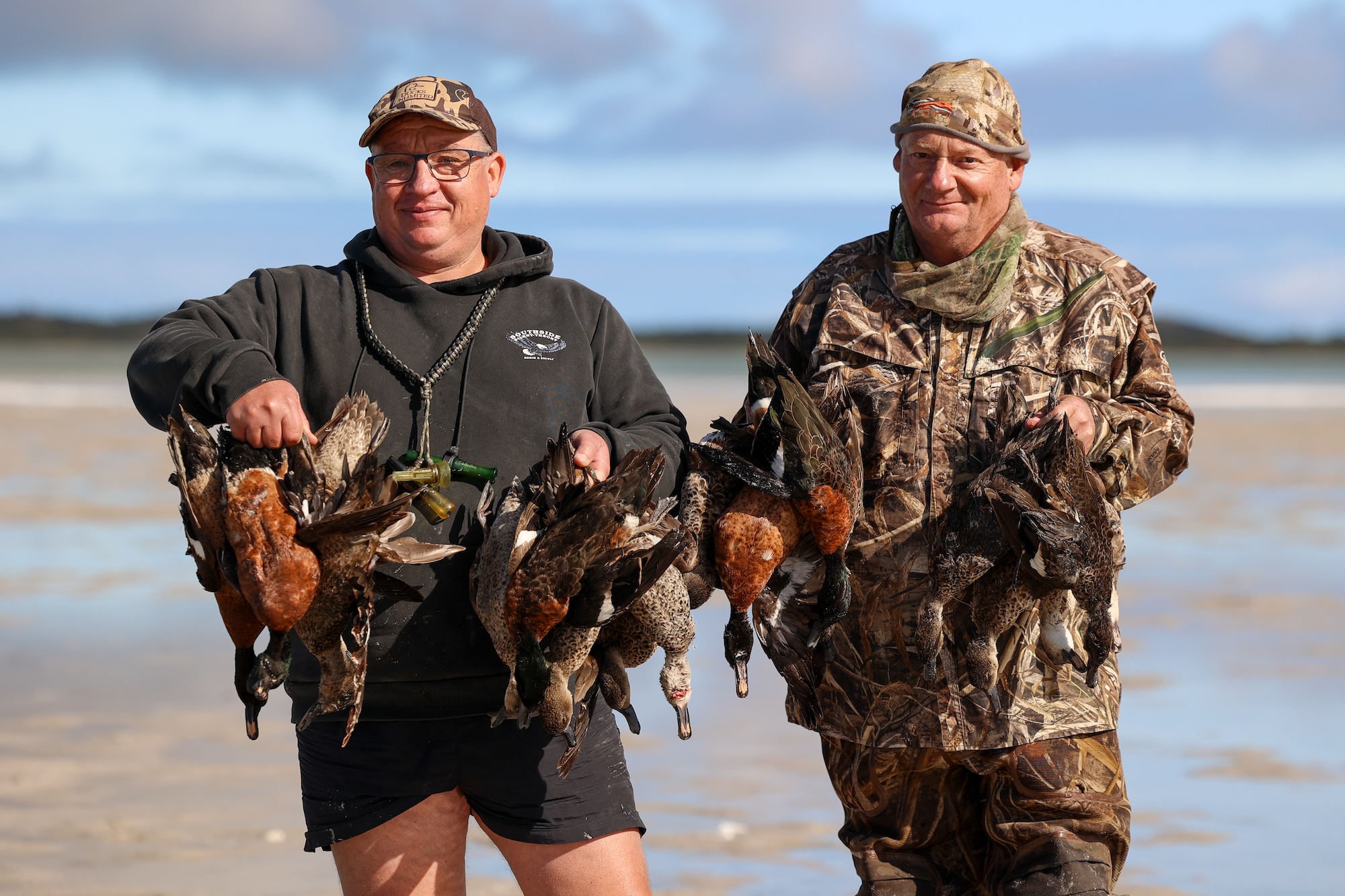
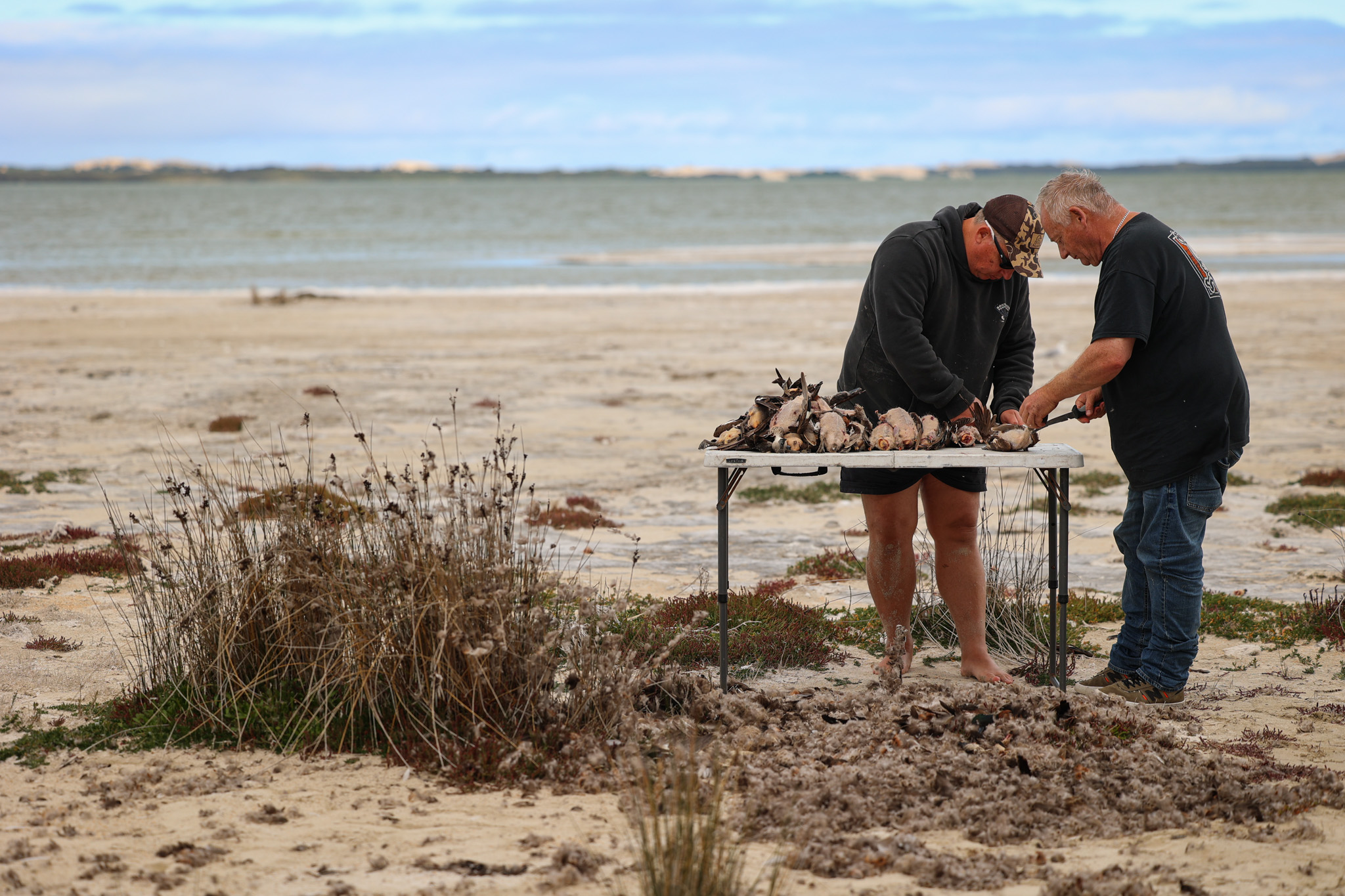
In the morning we return to the same spot and do it all over again. Before we fill our limits — slowing for an hour to watch gray teal decoy and get choosy with chestnut drakes — I persuade Falla to shoot first. I tuck in behind the two buddies as they worry about the only thing a duck hunter should on a day like today: making their shots count.
Four teal break off a big mob and fly up the guts of the spread. One pair breaks left and Falla stones both in neat succession; the second pair breaks right and Sharp does the same, though he doesn’t immediately see Falla’s ducks dead in the sand.
“Didn’t you get anything?” he asks incredulously.
“There’s four birds out there mate, I got one with each barrel,” Falla replies. “Can’t do much more than that.”
The post During Australia’s Duck Season ‘Circus’ Anti-Hunting Activists Will Steal Your Birds, Paddle Through Your Decoys, and Film Your Kids appeared first on Outdoor Life.
Source: https://www.outdoorlife.com/hunting/australia-duck-season/


